Are you looking to add some variety to your diet while also improving your health? Look no further than Yellow Fruits. These tasty treats are not only delicious but also packed with nutrients that can benefit your body in numerous ways. These fruits should be a staple in your diet. So here is a list of 39 yellow fruits with their names and images. And for quick reference, I've also included a free printable pdf.
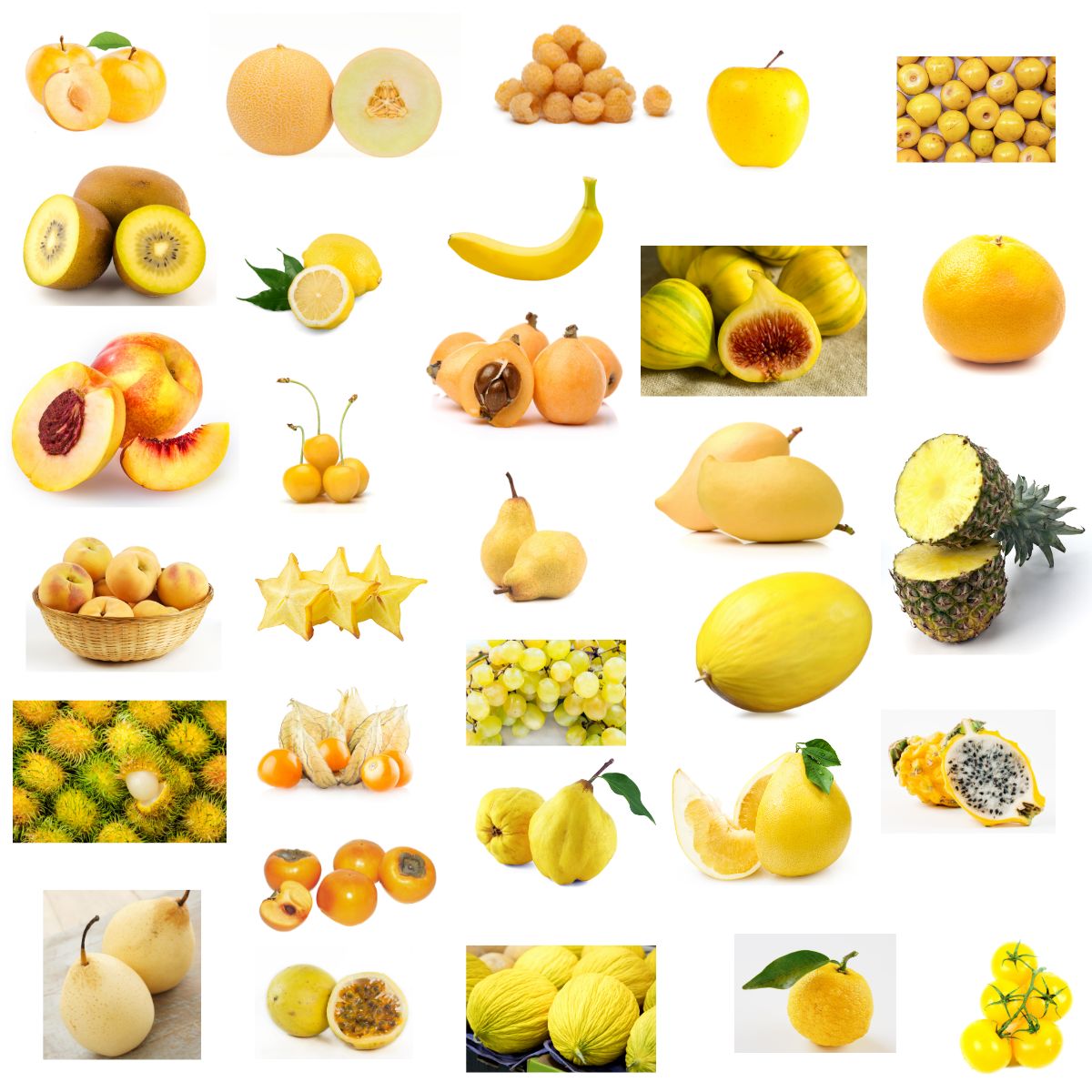
You might also be interested in my anti inflammatory foods list (with free printable pdf).
Jump To / Aller directement à
⭐ Their Health Benefits
Discover the health benefits of yellow fruits. From improving digestion to boosting immunity and promoting healthy skin, we'll explore the many benefits of incorporating these fruits into your meal plan.
Improve Digestion
One of the key benefits of incorporating yellow fruits into your diet is their ability to improve digestion. This is because many yellow fruits are rich in fiber, which is essential for maintaining healthy digestion. Fiber helps to keep the digestive system running smoothly by promoting regular bowel movements and preventing constipation. Additionally, fiber feeds the good bacteria in the gut, which in turn helps to maintain a healthy gut microbiome.
By incorporating yellow fruits into your diet, you can support healthy digestion and ensure that your gut is functioning at its best. This can lead to a range of benefits, including improved nutrient absorption and a reduced risk of digestive issues like bloating and constipation.
Boost Immunity
These fruits are rich in vitamin C, an essential nutrient that plays a vital role in strengthening the immune system.
Moreover, yellow fruits contain other nutrients that can support immunity, such as vitamin A and beta-carotene. These nutrients help to protect the body's cells from damage and reduce inflammation, thereby supporting the immune response.
Protect Heart Health
Yellow fruits also contain nutrients that can benefit heart health. Studies have shown that regular consumption of yellow fruits may play a role in reducing the risk of heart disease.
Promote Healthy Skin
Yellow fruits not only provide numerous health benefits but also promote healthy skin. These fruits are rich in vitamin C, which is essential for collagen production. Collagen is a protein that promotes skin elasticity, reduces wrinkles, and protects against sun damage.
By incorporating yellow fruits into your diet, you can improve your skin’s texture, tone, and overall appearance.
Help with Weight Management
Most yellow fruits are low in calories and high in fiber, which can help you feel full for longer periods and ultimately can help with weight management.
Conclusion
Incorporating yellow fruits in your diet can benefit you in multiple ways. From providing numerous health benefits to promoting healthy skin and aiding in weight management, yellow fruits offer plenty of reasons to include them in your daily meals.
Now that you are convinced that you should add them to your plate, you're probably wondering what fruits are yellow.
So here is a list of yellow fruits that you may want to add to your grocery shopping list.
📖 Yellow Fruits List (Images and Names)
1. Banana

Bananas are packed with nutrients and can help improve digestion, boost energy levels, and even lower the risk of heart disease.
They contain several types of antioxidants, including flavonoids and amines. These antioxidants are linked to many health benefits, such as a lower risk of heart disease.
Bananas are a great source of carbohydrates and potassium, making them an ideal snack for athletes and fitness enthusiasts.
The fiber and resistant starch in bananas can keep you feeling full and satisfied, while also promoting healthy digestion.
2. Yellow Apple (Golden Delicious)
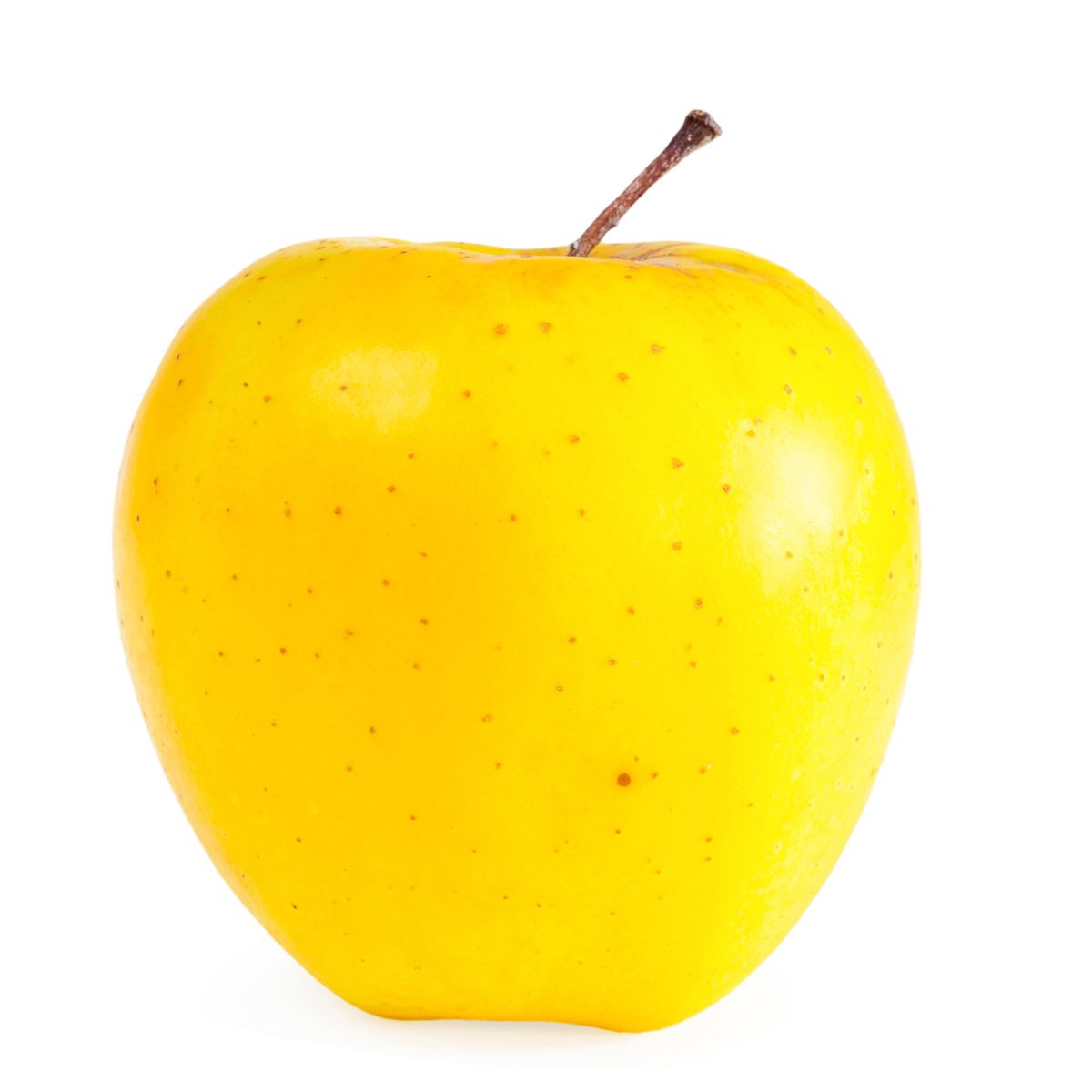
Yellow apples (also called Golden Delicious Apples) are more than just a tasty fruit. They are loaded with nutrients that can offer a wide range of health benefits.
Golden Delicious apples are rich in carotenoids (a group of antioxidants). They’re also a good source of potassium, iron and zinc.
Whether you're looking to improve your digestion, reduce inflammation, boost your immune system, support your heart health or enhance your skin health, yellow apples are an excellent choice. As the saying goes: "An apple a day keeps the doctor away"!
3. Lemon

Lemons are high in vitamin C and contain a high level of dietary fiber – however, you need to eat the pulp of the lemon, not just the juice in order to get the fiber. Lemons are also a valuable source of flavonoids. These nutrients are responsible for several health benefits.
In fact, lemons may support heart health, help control weight, protect against anemia and prevent kidney stones.
Caution about Lemons and Lemon Juice
Lemon Juice May Erode Dental Enamel if consumed in excess. Drinking lemon juice can trigger migraine headaches for those who are sensitive to tyramine.
4. Yellow Pear
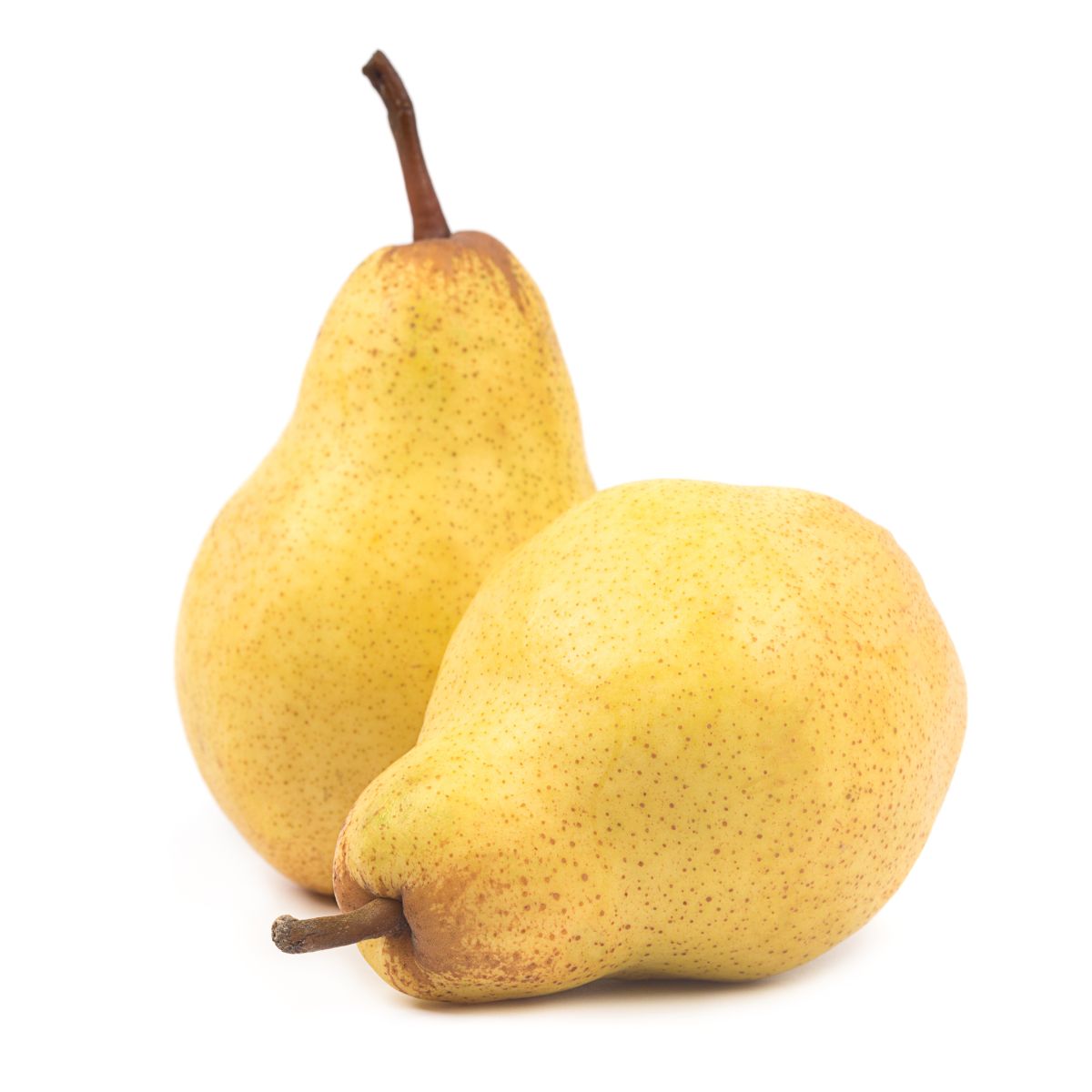
Pears are especially rich in folate, vitamin C and in important minerals such as copper and potassium. They’re also rich in polyphenol antioxidants, flavonoids, procyanidins and quercetin. These nutrients are thought to fight inflammation, protect heart health and protect against certain diseases.
Moreover, pears offer dietary fiber, including prebiotics, which promotes overall digestive health.
To get the most beneficial compounds from your pear, eat it with the skin on.
5. Yellow Grapes
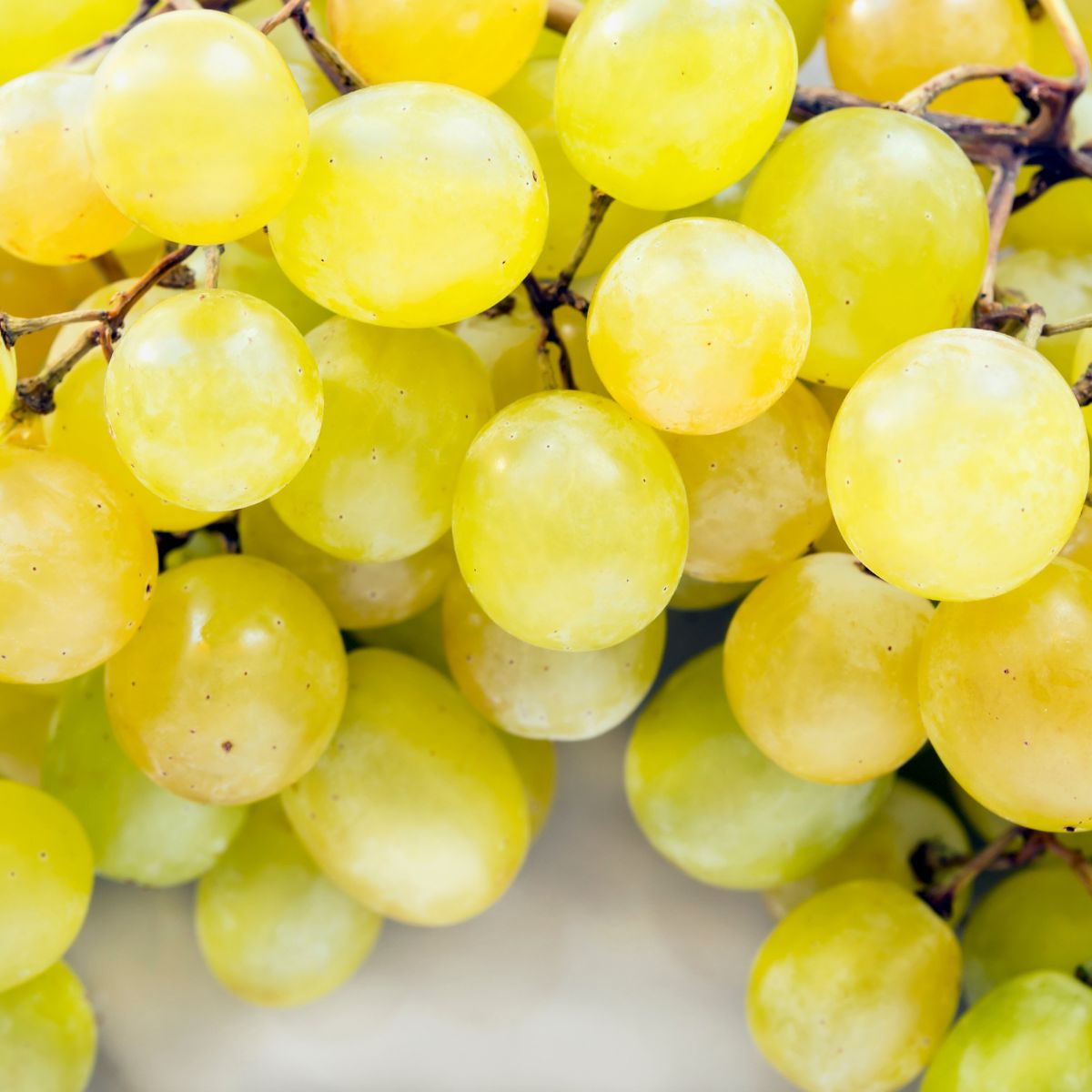
Grapes contain copper, potassium, manganese and vitamins B, C, and K. They are also rich in antioxidants. They contain beta carotene, lutein, ellagic acid, resveratrol and quercetin.
Thanks to their high nutrient and antioxidant contents, grapes offer a wide range of health benefits.
6. Yellow Plum (Mirabelle Plum)
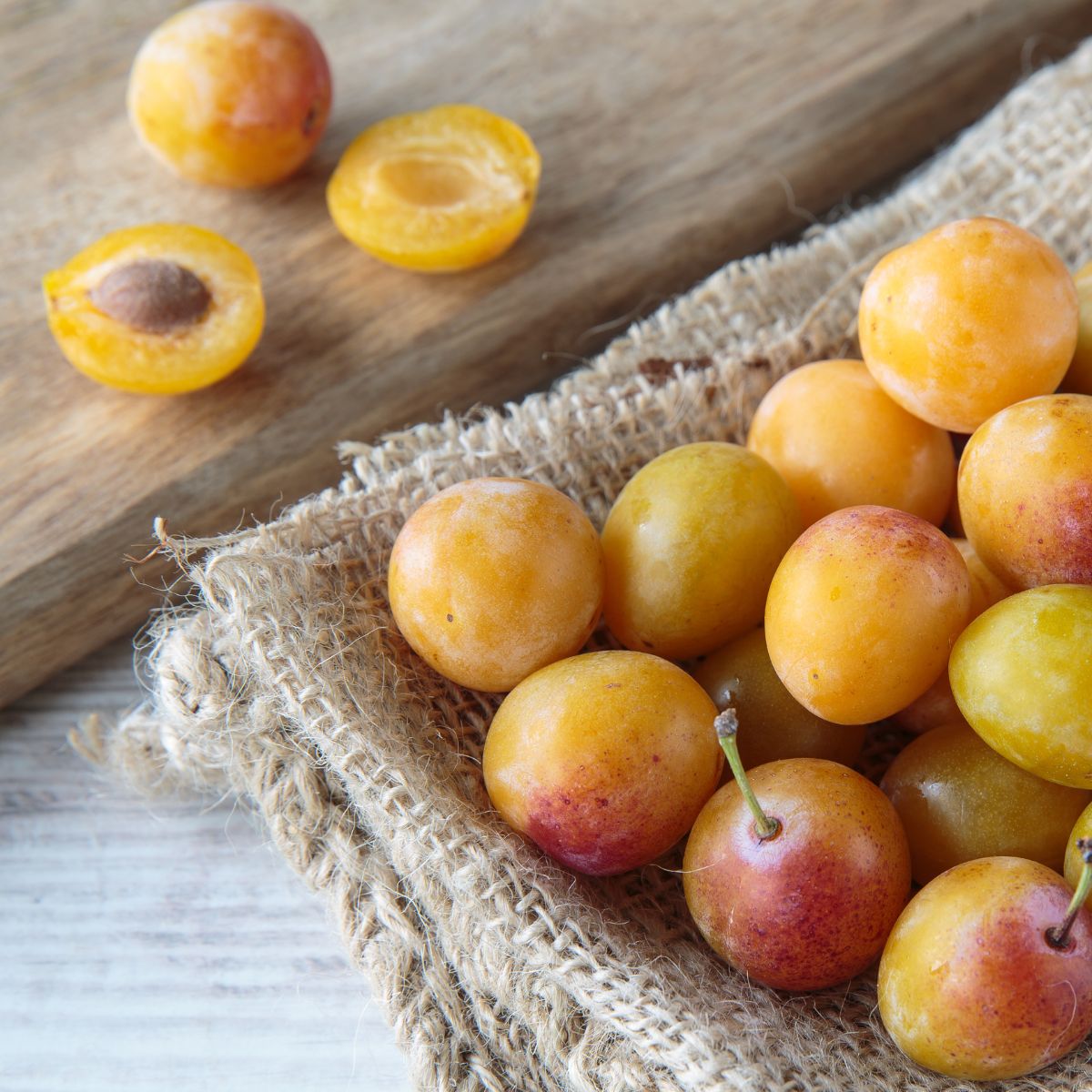
Falling in between apricots and plums in taste, yellow plums are a naturally sweet and juicy fruit.
Mirabelle plums are a good source of vitamin A, vitamin C, various B vitamins and antioxidants. They’re also a good source of dietary fiber.
Yellow plums are an incredibly nutritious and versatile fruit that can offer numerous health benefits. From boosting your immune system to fighting inflammation, adding yellow plums to your diet can be a great way to enjoy a tasty and healthy snack.
7. Pineapple

Pineapple is one of the most popular fruits in the world, but it’s more than just a tasty treat. From boosting your immunity to reducing inflammation, pineapple offers an impressive amount of health benefits.
Pineapples are loaded with vitamins and minerals: they contain vitamin C, manganese, vitamin B6, copper, thiamin, folate, potassium, magnesium, niacin, riboflavin and iron.
Pineapples also contain bromelain, an enzyme that may aid digestion and may reduce risk of cancer.
8. Yellow Nectarine
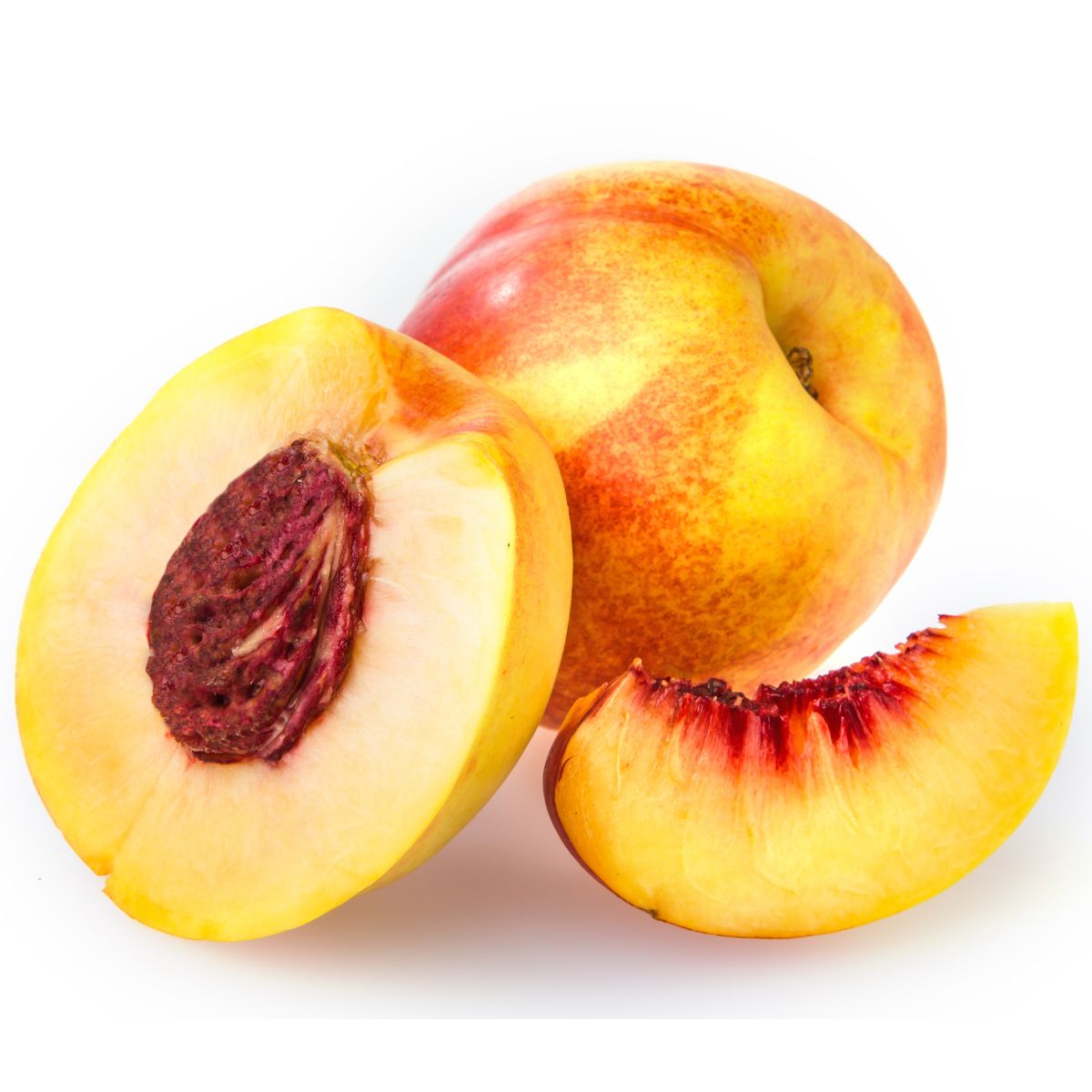
Yellow nectarines stand out as the ultimate summer fruit. Not only are they refreshing and delicious, but they also offer a wide range of health benefits that can help keep you feeling your best all season long.
Nectarines boast numerous nutrients, including potassium, copper and vitamins B3 and C and they are high in antioxidants. They are also relatively low in calories and high in fiber.
9. Yellow Peach
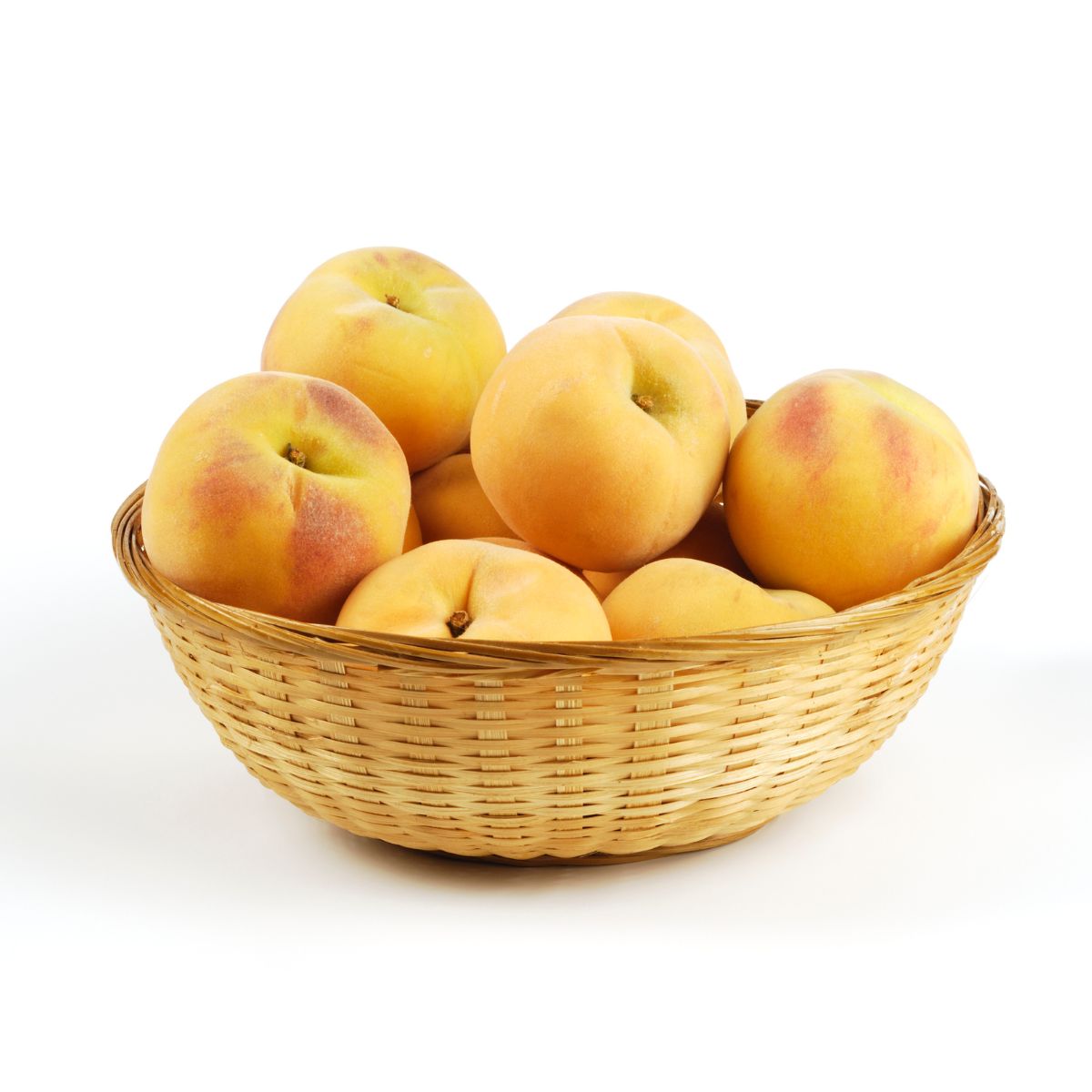
Yellow peaches are packed with antioxidants and nutrients. If you're looking for an all-natural way to improve your health, they are a great choice.
They are high in fiber, vitamin A, C, E and K, potassium, copper and manganese.
Yellow peaches are a great addition to your daily diet, providing a range of essential nutrients that can boost your overall health and well-being. They may aid digestion, improve heart health, protect your skin and prevent certain types of cancer.
10. Yellow Cherries (Rainier Cherries)
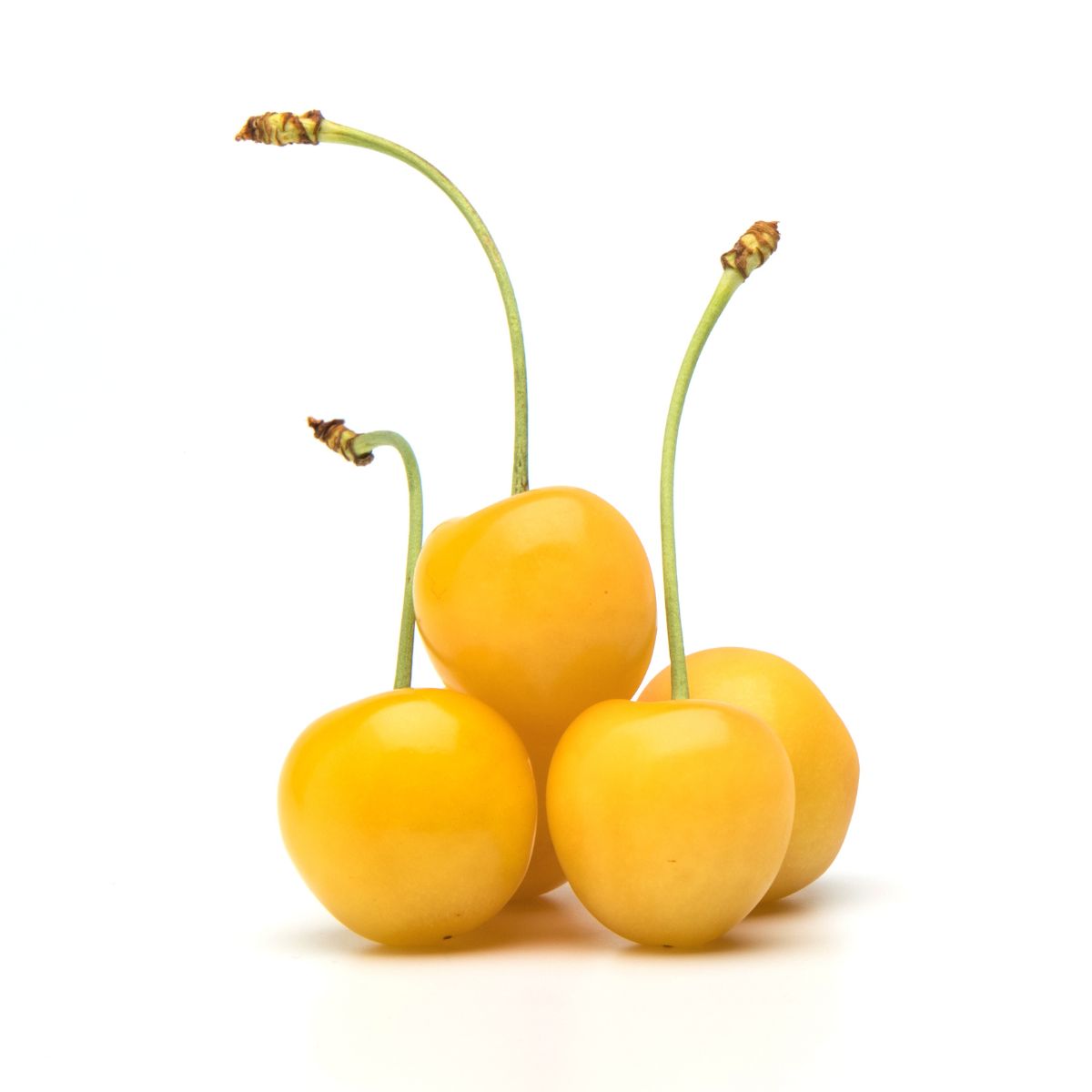
Yellow cherries may be a small fruit, but they pack a powerful punch when it comes to their health benefits.
They are a great source of vitamin C, potassium and antioxidants. Yellow cherries are also a source of vitamin A, B vitamins, vitamin K, magnesium, copper, manganese, and fibre.
11. Grapefruit

Grapefruits are high in vitamin C, vitamin A and fiber. Which may help support gut health, heart health and weight management.
They are also a great source of potassium, thiamine, folate and lycopene.
Caution about Grapefruit
Grapefruit, grapefruit juice and related oils and extracts may interact with certain medications. For example, when you drink grapefruit juice with your medication, the medication won’t work as it ought to.
Talk to your doctor if you take any medications or supplements, or if you have any related underlying health conditions, before you consume grapefruit or grapefruit juice.
12. Quince Fruit
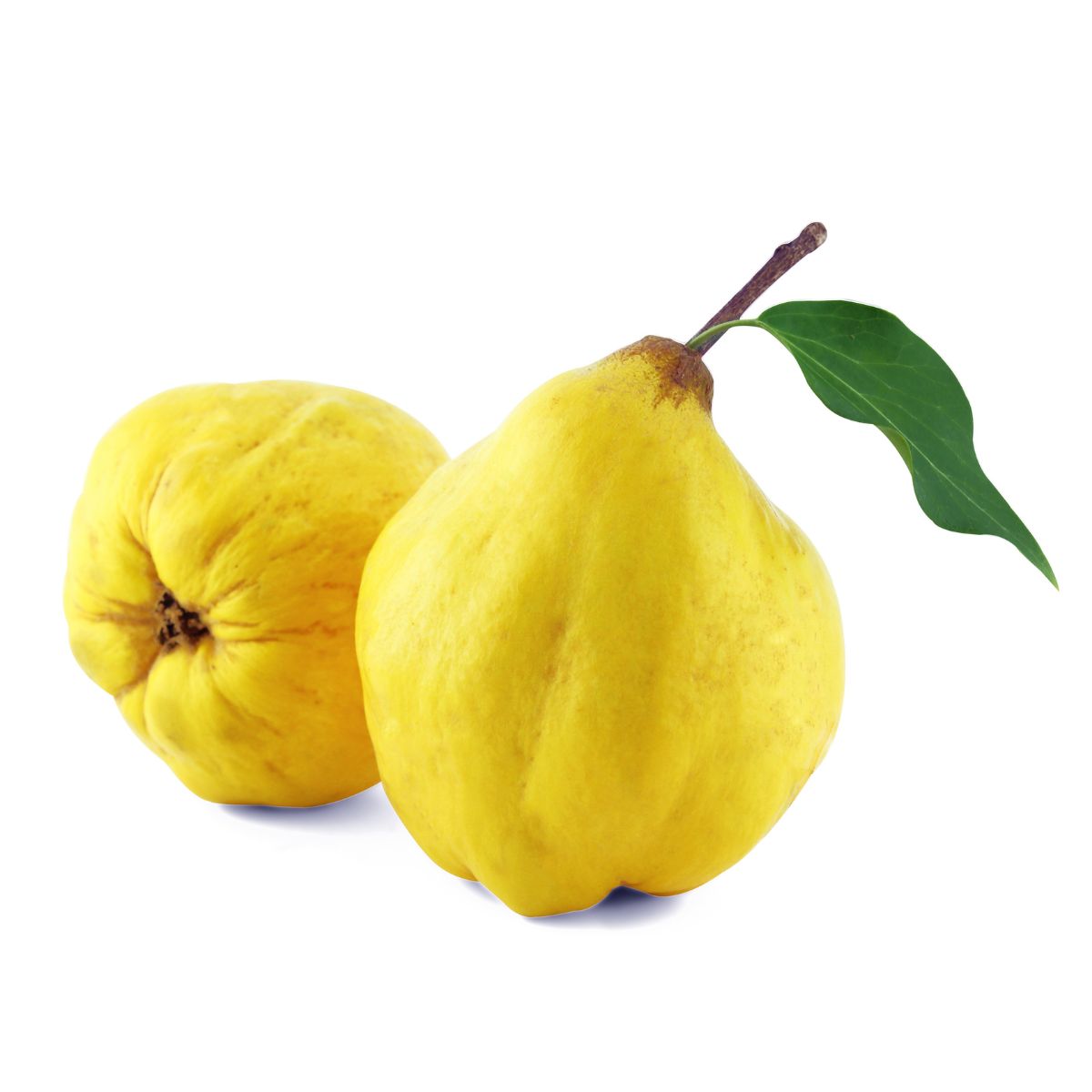
Quince is a hard, yellow fruit that belongs to the same family as apples and pears and that is native to the Mediterranean region.
Unlike apples and pears, quinces are inedible raw as they can be hard as a rock. Which can make it hard to cut them up.
While quince may not be as well known as other fruits, it is packed with nutrients and antioxidants that are beneficial to health. It’s rich in fiber, vitamins C and K, minerals like copper and potassium and antioxidants. Quince also contains pectin and tannins.
13. Yellow Tomato
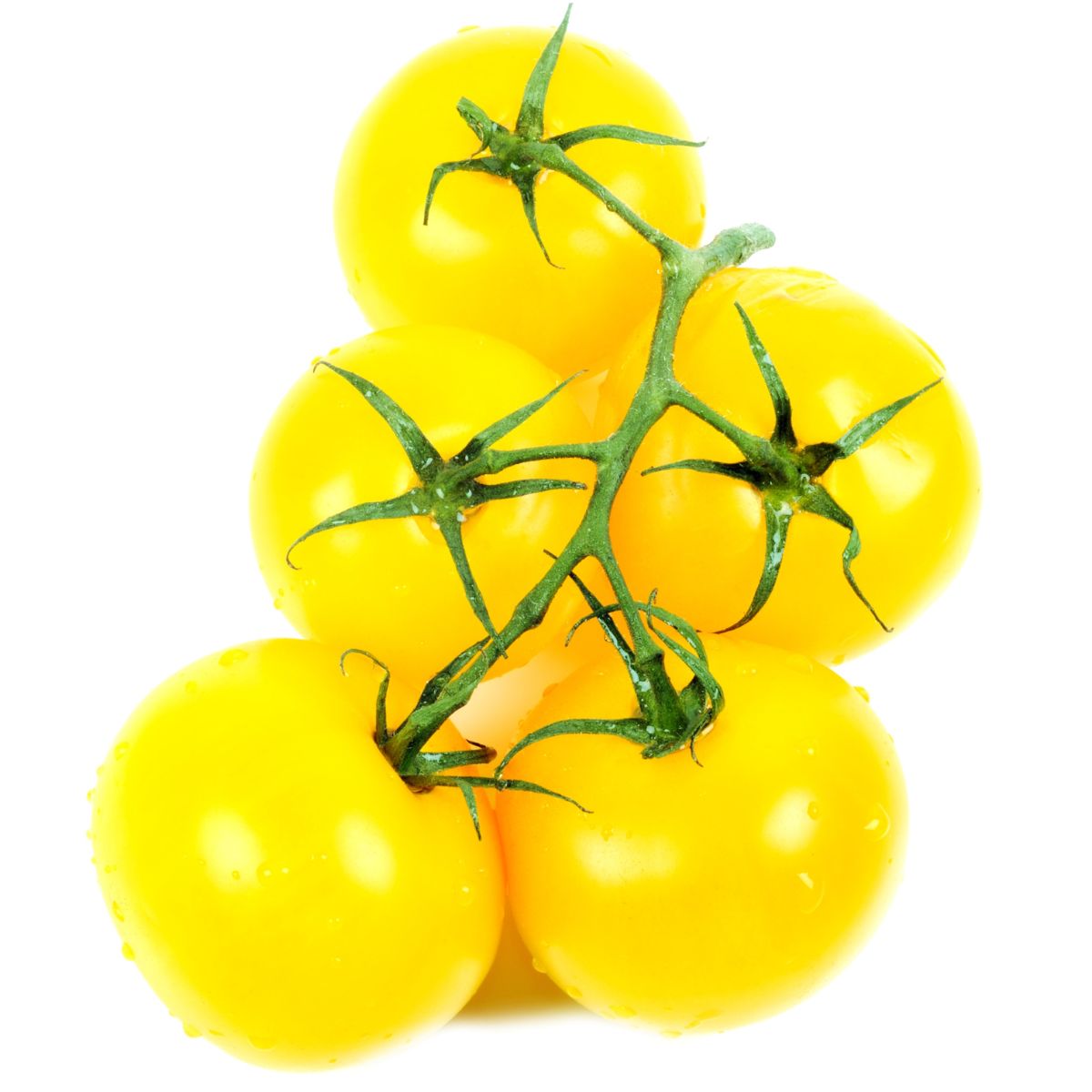
Yellow tomatoes are good sources of iron and Vitamin C, as well as niacin, folate and potassium.
Yellow tomatoes contain twice as much zinc - which helps your immune system - as red tomatoes.
However, unlike red tomatoes, they contain no Vitamin A and no lycopene.
Caution about Yellow tomatoes
Tomatoes are part of the nightshades (also known as the Solanaceae) plant family. So if you react to nightshades or you are on a nightshades free diet like AIP you need to stay away from them.
14. Golden Raspberries
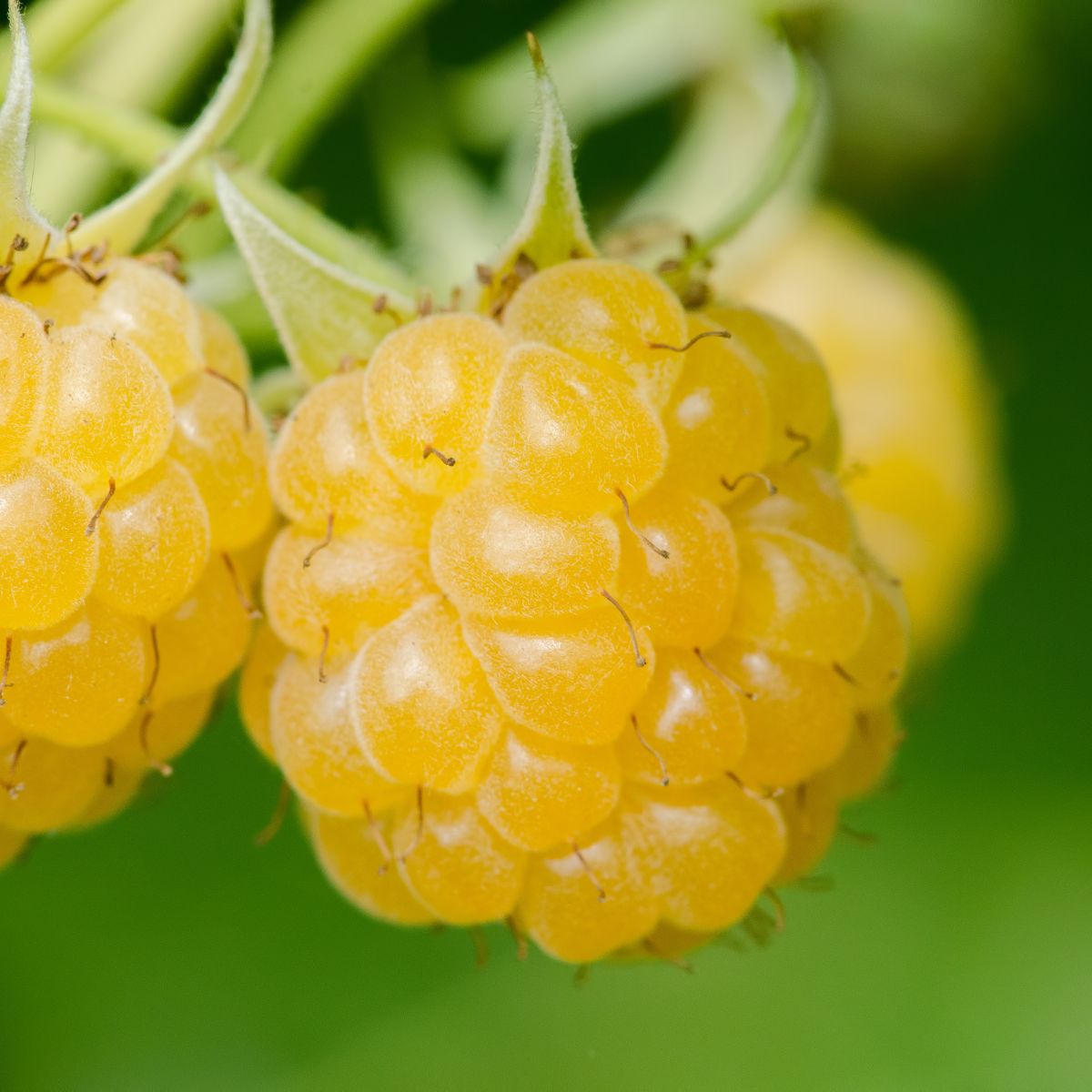
Golden raspberries are a good source of antioxidants, including vitamin C. They are also a source of calcium, fiber, iron, vitamin B, manganese, magnesium, copper, iron, and calcium.
15. Plantain
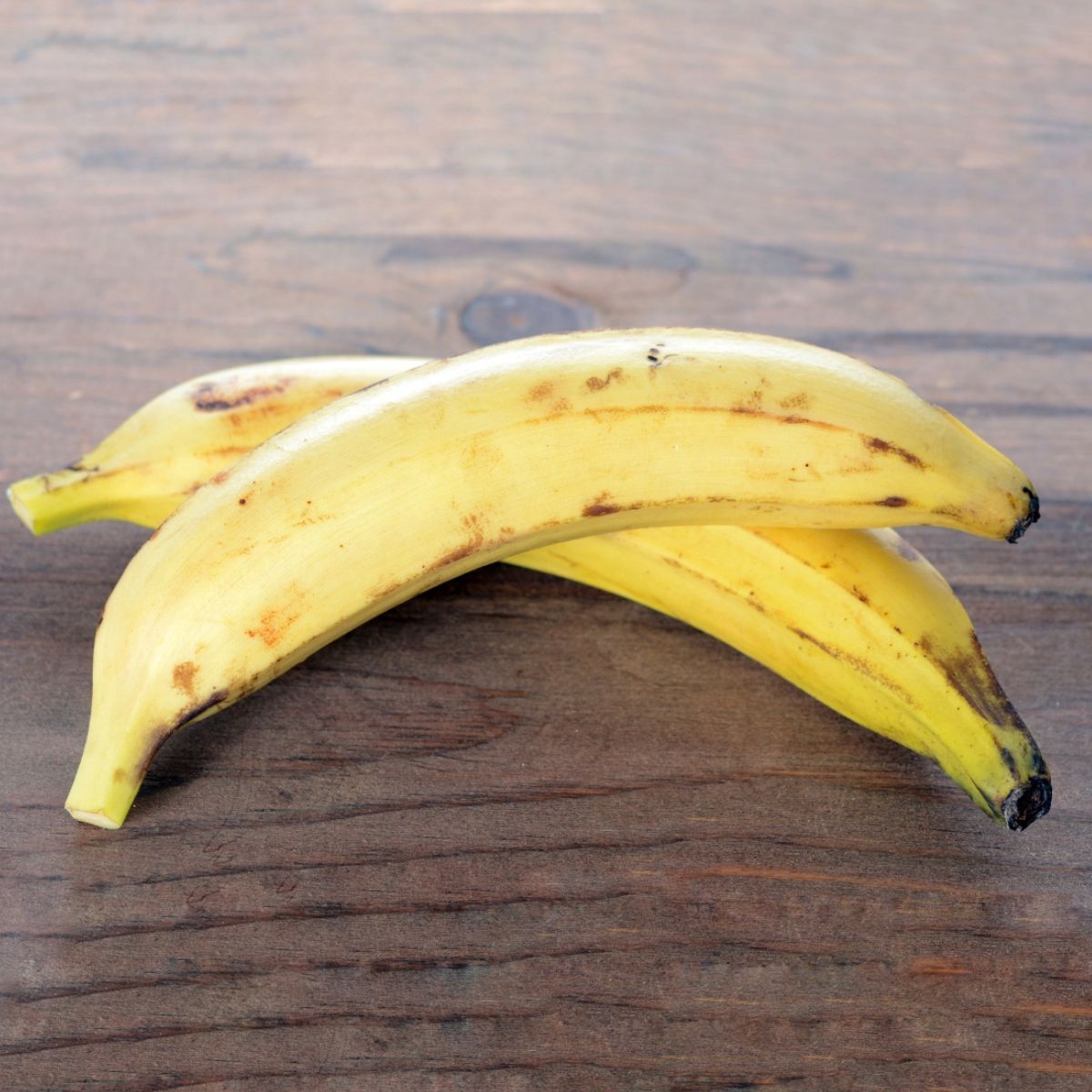
Plantains are a nutritious food item with many potential health benefits. They are a member of the banana family. Unlike bananas, they are mostly consumed after being cooked either when they are still completely green, yellow or completely black according to their stage of ripeness. They are used both for savory recipes and desserts.
They are high in carbs, a good source of fiber and rich in antioxidants. They contain vitamin B6, vitamin C and potassium.
16. Pomelo
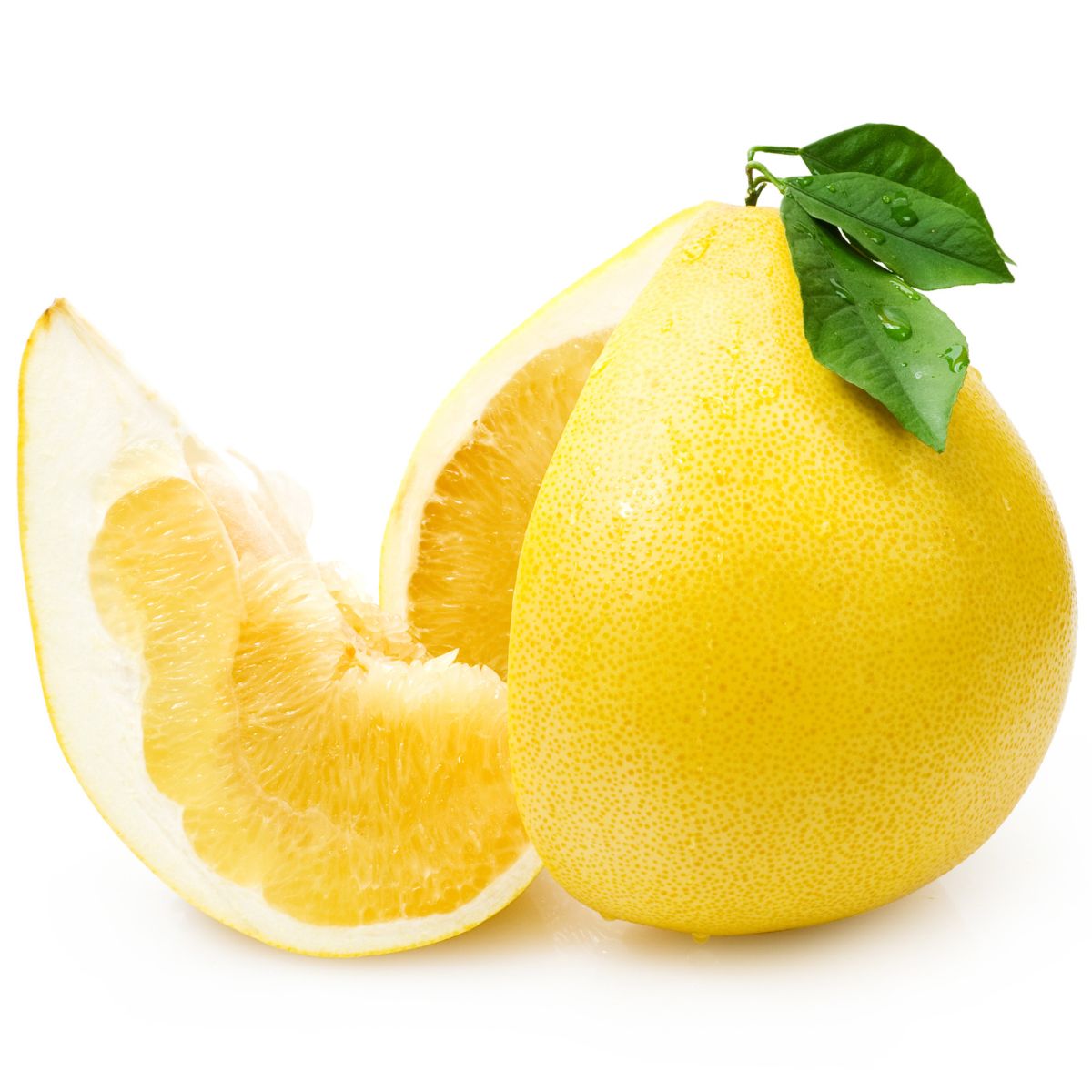
Pomelo is a large citrus fruit (larger than grapefruit) originated from Asia.
It's rich in vitamin C and a great source of potassium, copper and riboflavin. It's also high in fiber.
Caution about Pomelo
Pomelo and pomelo juice and related oils and extracts may interact with certain medications.
Talk to your doctor if you take any medications or supplements, or if you have any related underlying health conditions, before you consume pomelo or pomelo juice.
17. Yellow Papaya
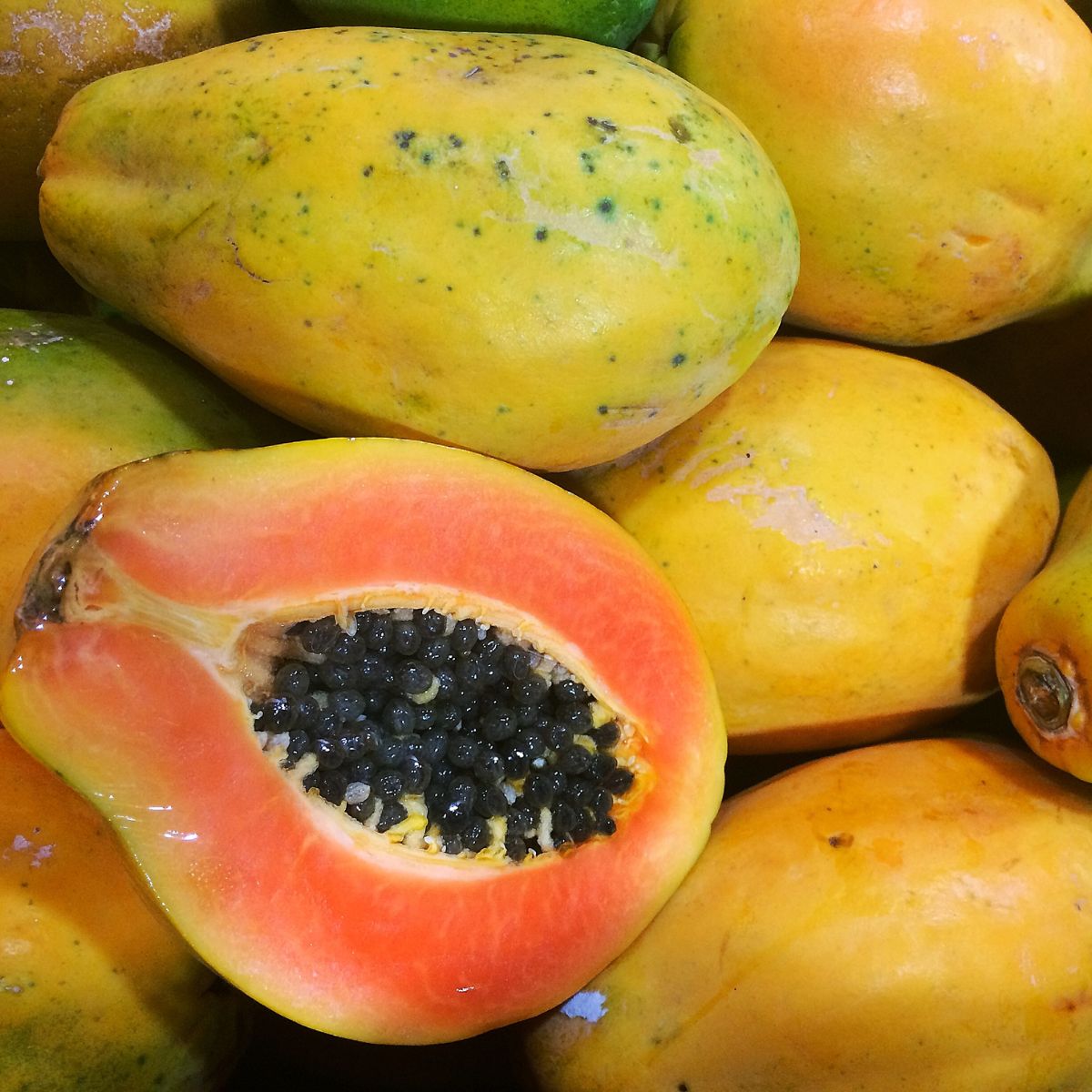
Papayas contain high levels vitamin A, vitamin C and vitamin E. It is also high in fiber and a good source of folate, copper, magnesium and potassium
It may reduce the risk of heart disease, aid digestion and reduce inflammation.
18. Star Fruit (Carambola)
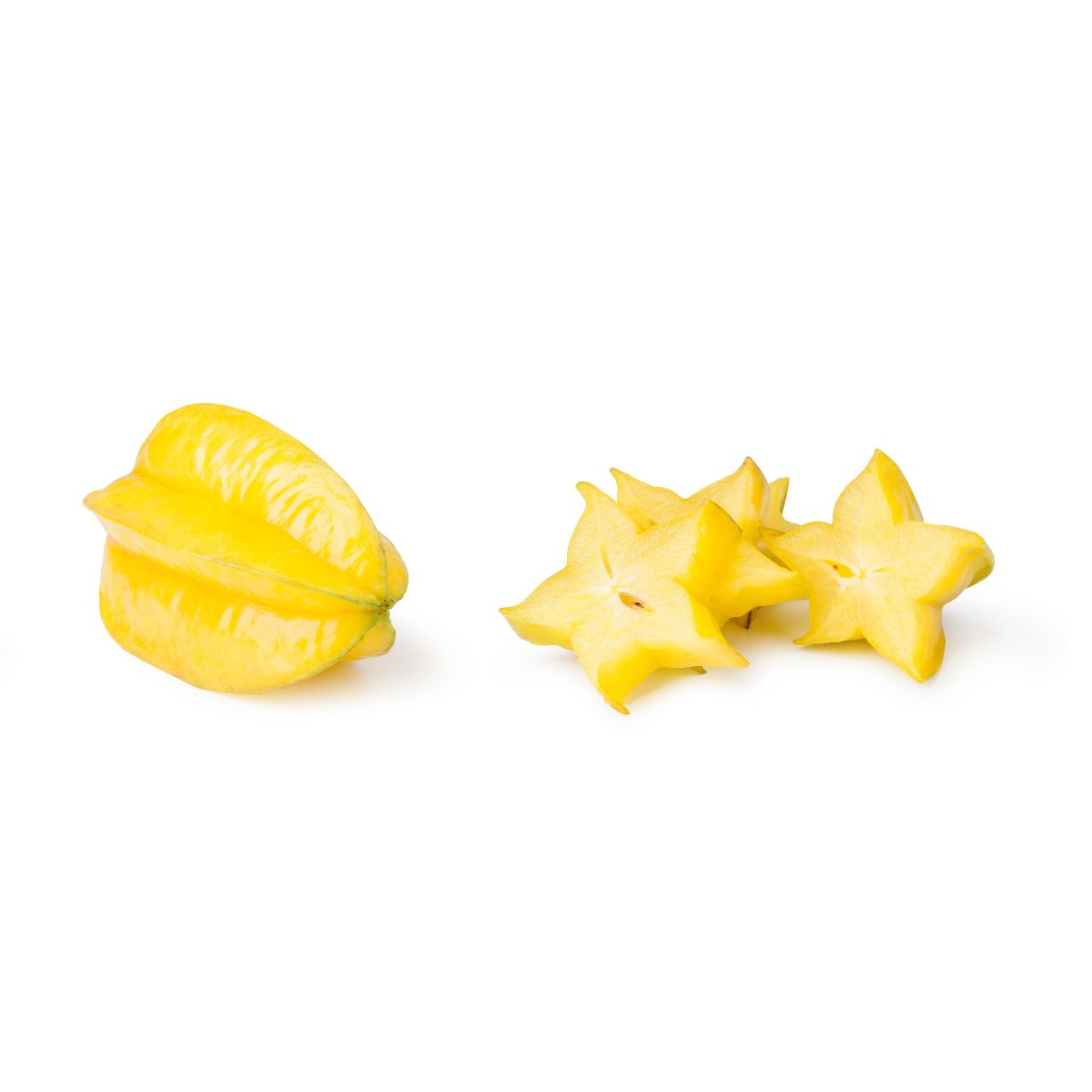
Star fruit is low in calories but high in fiber, vitamin C and antioxidants.
The antioxidants and anti-inflammatory properties of star fruit may improve your skin health and may help with digestion and weight loss.
Caution about Star Fruit
But if you have kidney issues or take certain medications, you should talk with your doctor before consuming it.
Because star fruit may cause adverse effects in some people, mainly due to its high oxalate content.
People taking prescription drugs should also proceed with caution. Similarly to grapefruit, star fruit may interact with certain medications.
Therefore, people taking prescription drugs and those with kidney problems should avoid star fruit and its juice — or consult with a doctor before trying it.
19. Yellow Fig
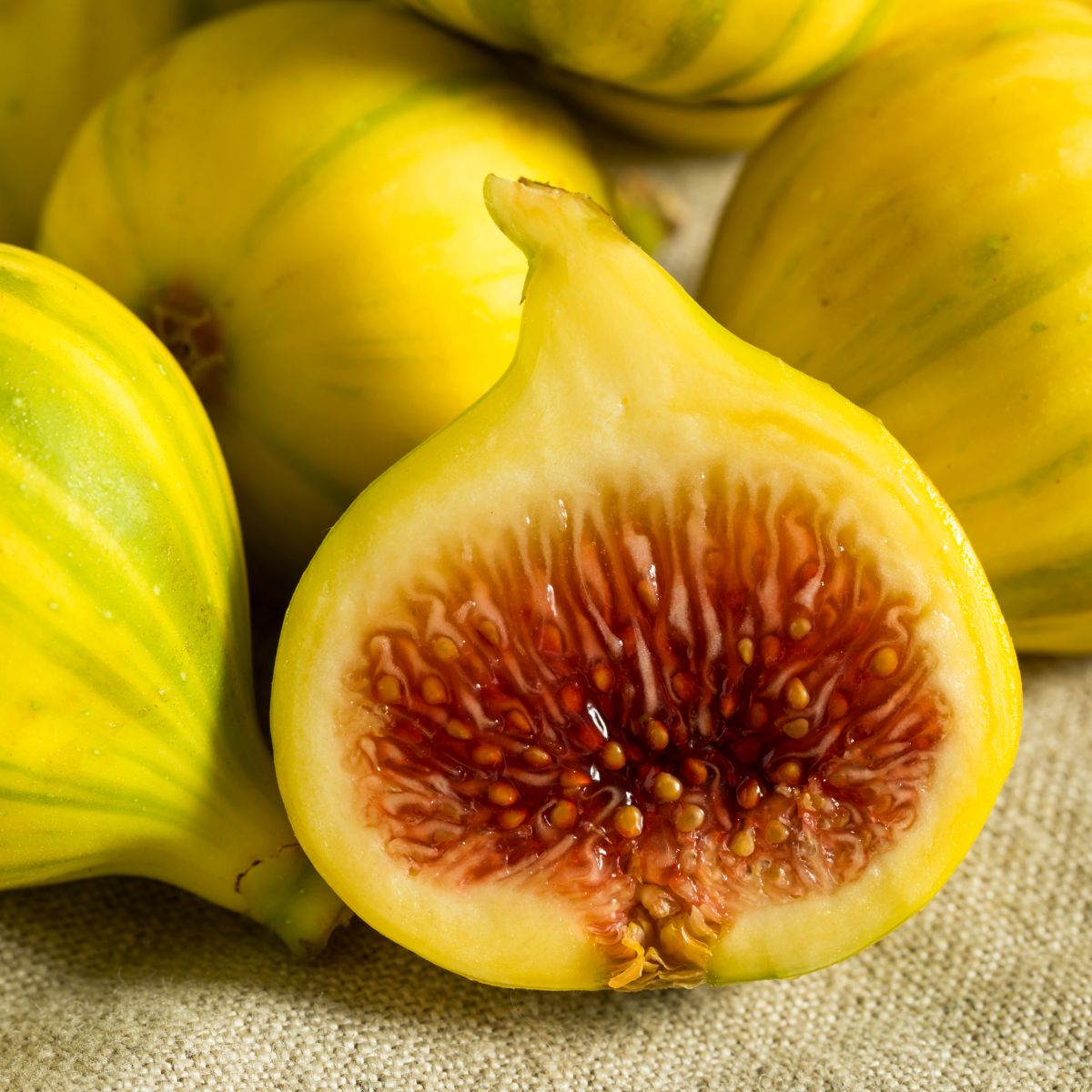
Yellow figs are high in essential nutrients such as vitamins, minerals and dietary fiber that aid in maintaining optimal health.
Yellow figs contain high amounts of vitamin C. They are rich in copper and vitamin B6.
In addition to boosting your immune system, yellow figs may also help improve your digestion and may promote healthy skin.
Figs are sometimes used as a home remedy for constipation.
Caution about Yellow Figs
Figs may cause diarrhea or other digestive problems due to their anti-constipation effect.
They can also interfere with blood thinning medications and cause them to be less effective.
Finally, some people may be allergic to figs because fig trees contain natural latex.
20. Yellow Mango
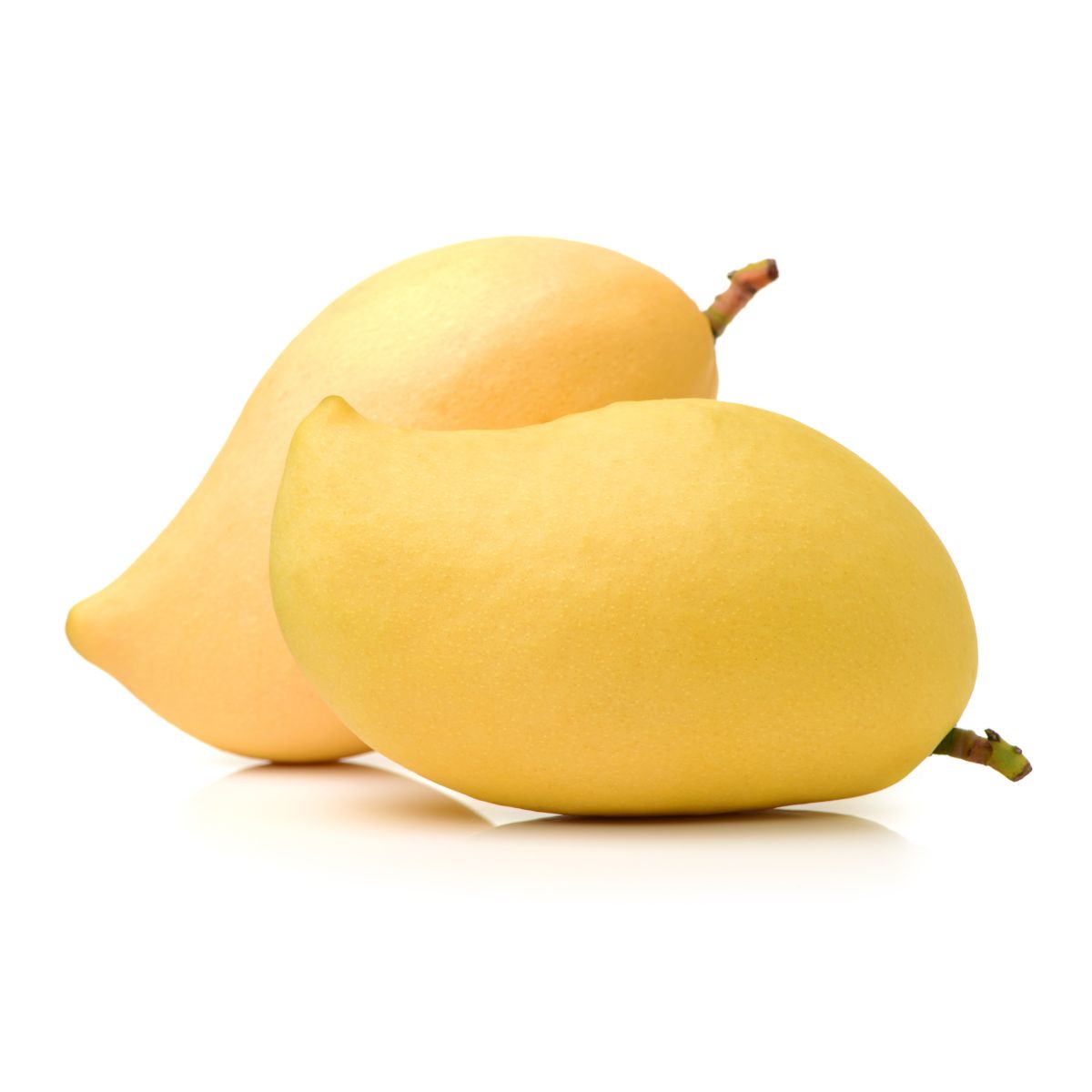
Mangoes are a nutritious tropical fruit that are low in calories, a good source of vitamin A and B6 and fiber. And they are an excellent source of vitamin C.
Mangoes contain high levels of antioxidants, including beta-carotene.
They may aid digestion, help maintain healthy skin and hair, may support heart health and eye health.
21. Golden Kiwi
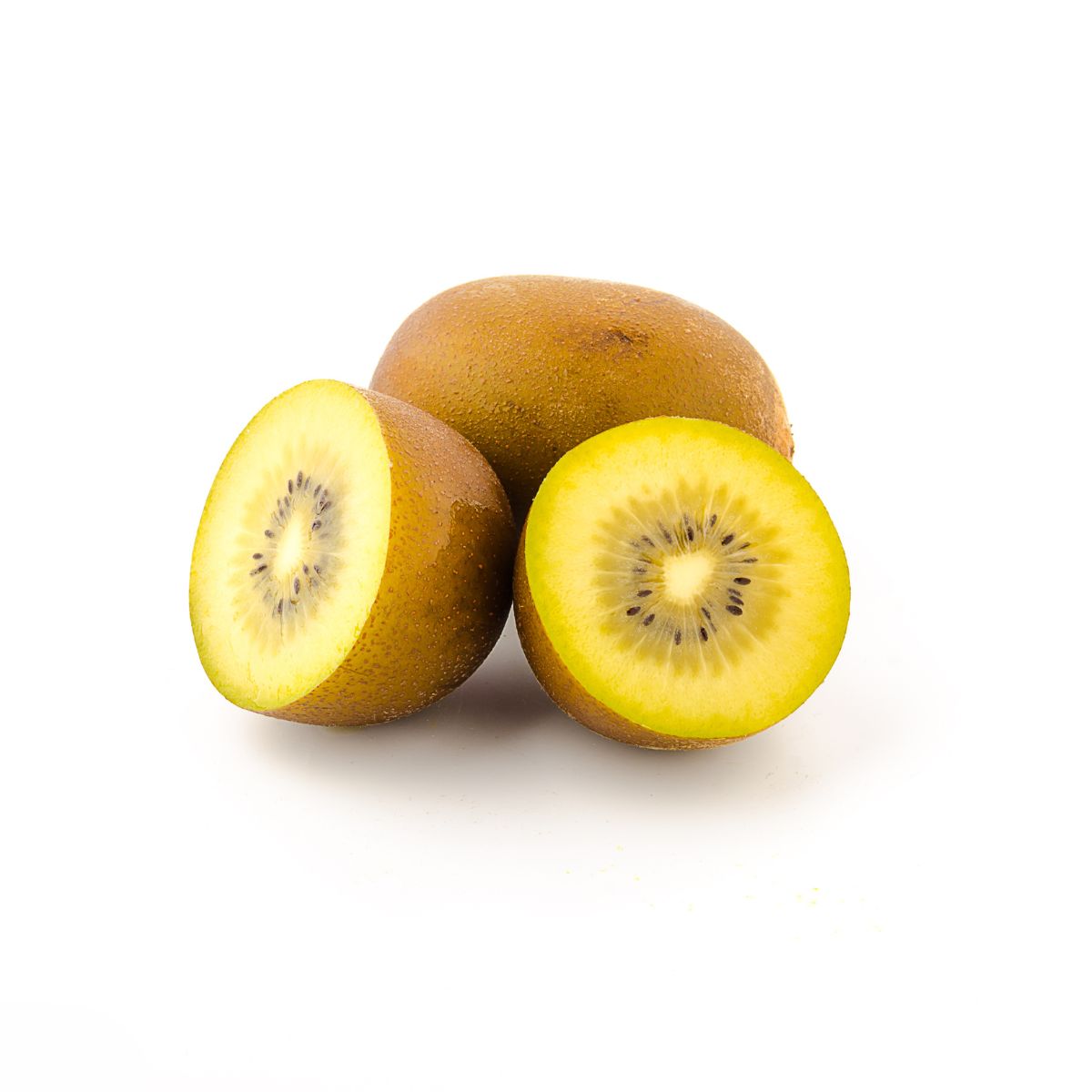
Kiwis are highly nutritious and contain fiber and many vitamins and minerals. They’re particularly high in vitamin C.
Caution about Golden Kiwi
Because they contain many potential allergens Kiwis can cause minor to severe allergic reactions in some people, particularly in children.
22. Yellow Hinnomaki Gooseberries
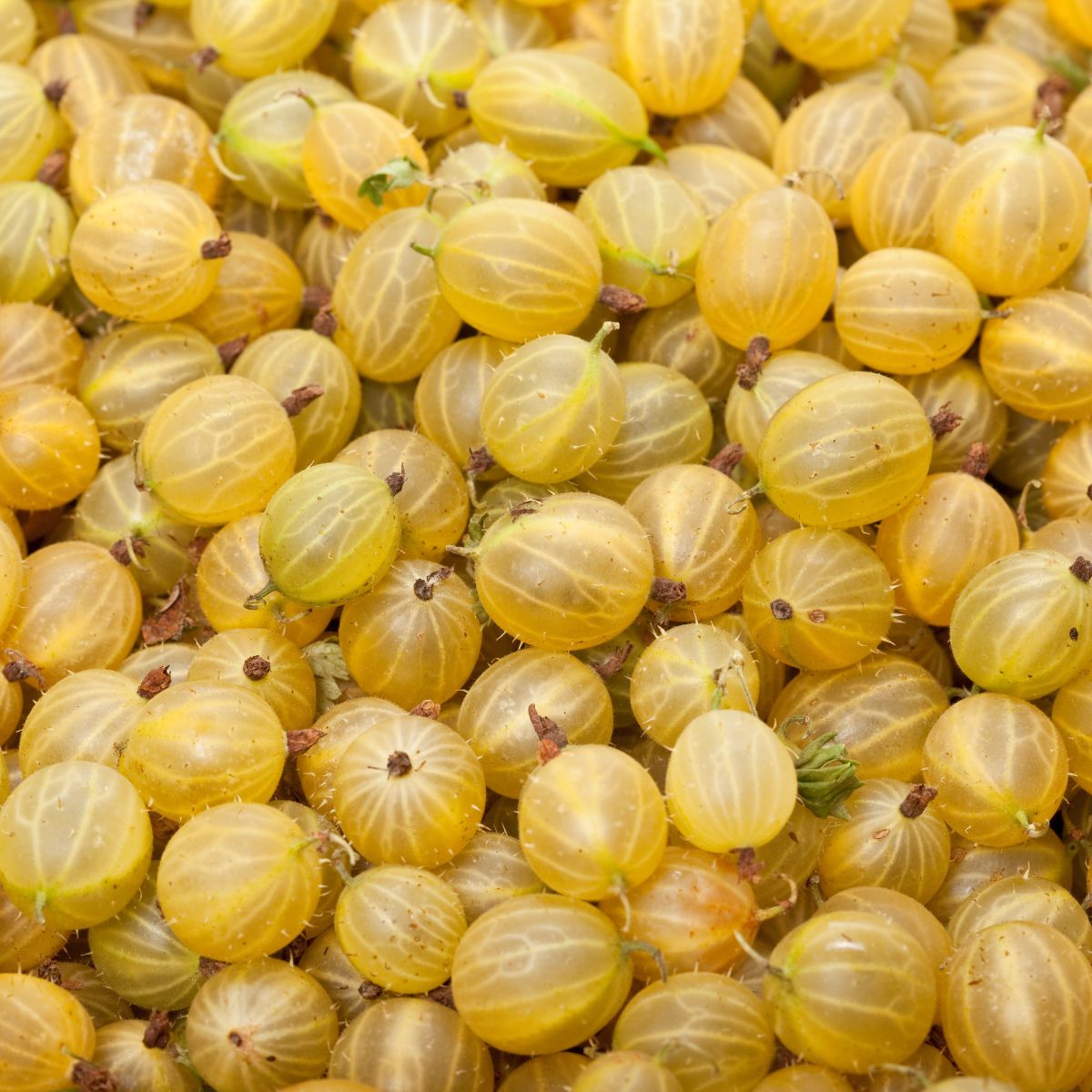
Yellow Hinnomaki Gooseberries are packed with antioxidants, which help protect the body from damage caused by free radicals. They are also a great source of vitamin C, which supports a healthy immune system and helps the body absorb iron. They are low in sugar. Moreover, hinnomaki berries are a rich source of fiber. Additionally, these berries contain potassium and calcium.
23. Asian Pear (Nashi Pear or Nashi Fruit)
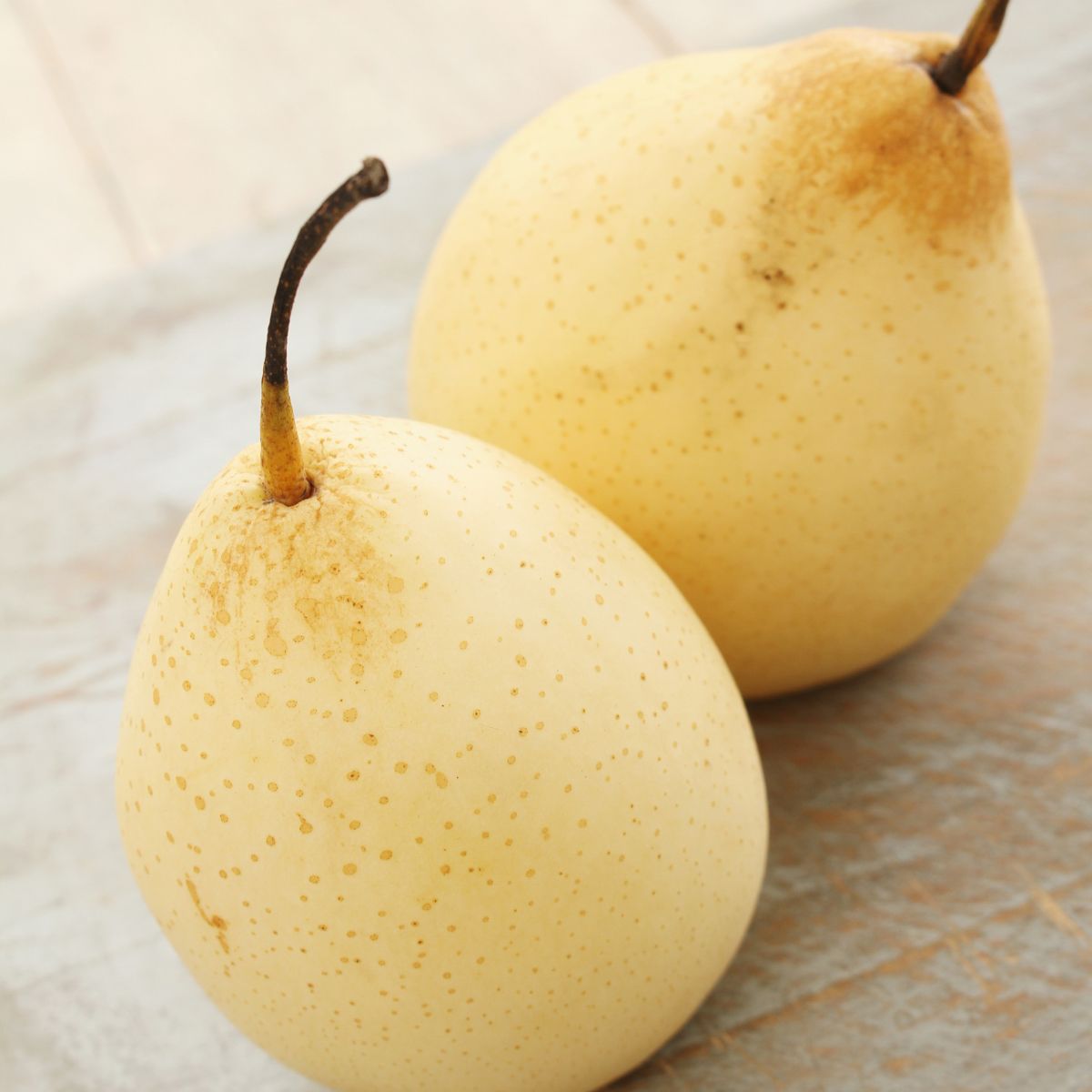
Asian pears are a great source of dietary fiber, potassium, vitamin C, vitamin K, copper, folate and magnesium.
24. Barhi Dates
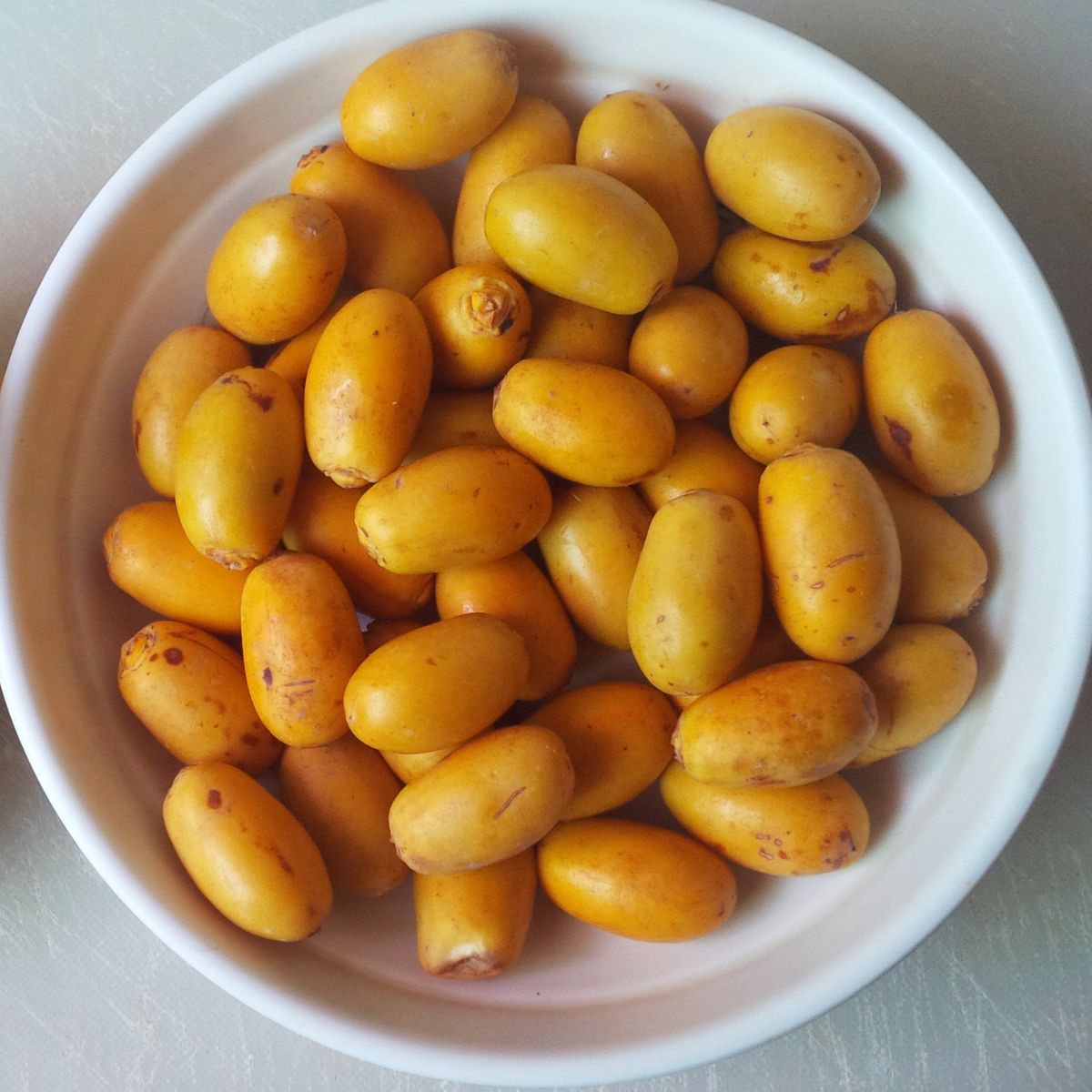
Yellow Barhi dates are available in the late summer through early fall.
They are a source of fiber, potassium, copper and manganese. The dates also provide vitamin C, iron, antioxidants and other nutrients, including zinc, B vitamins and magnesium.
25. Egg Fruit (Canistel Fruit)
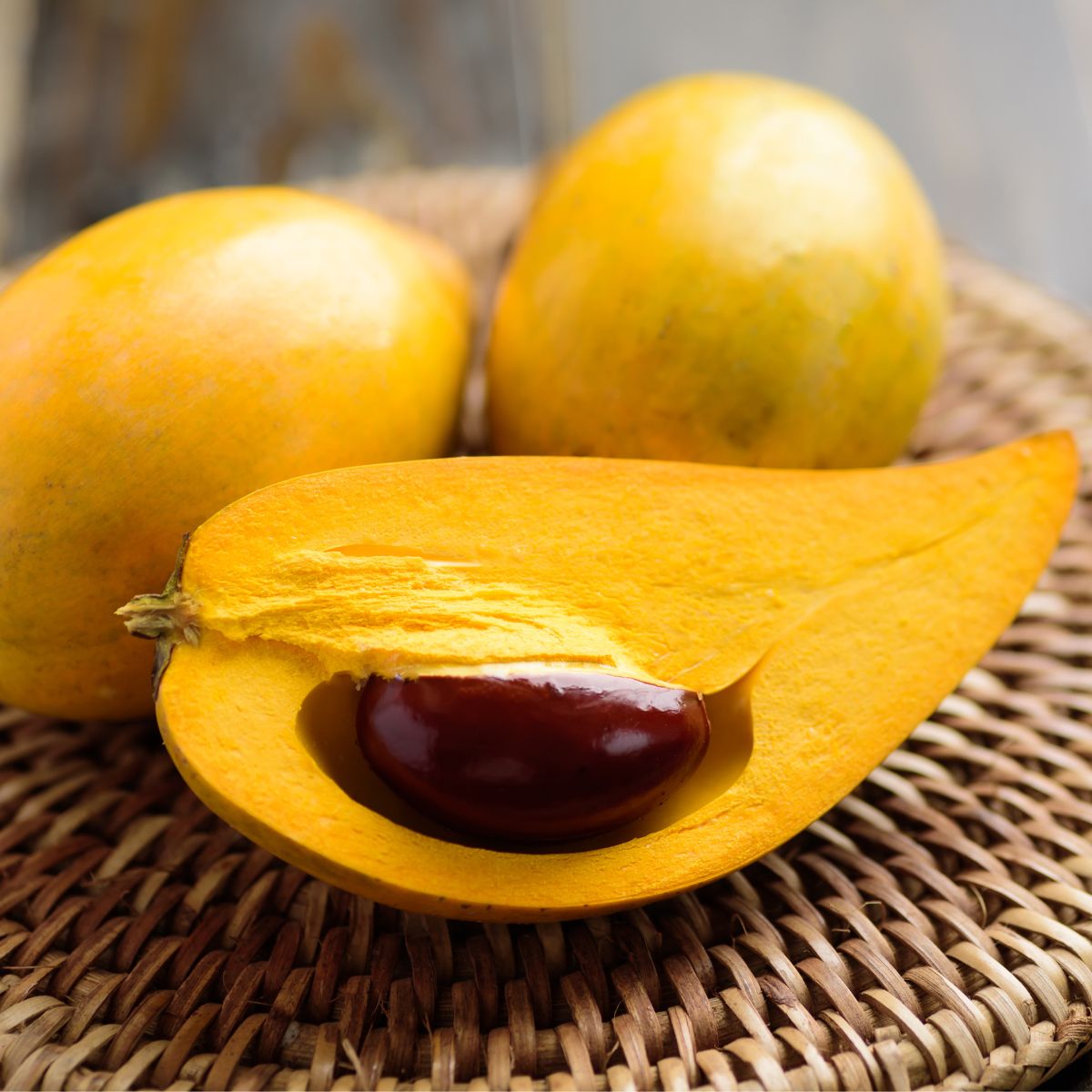
Egg fruits are a tropical to subtropical fruit, available in the fall through winter.
They are an excellent source of beta-carotene. Egg fruits are also a good source of calcium, phosphorus and contain iron.
26. Yellow Dragon Fruit
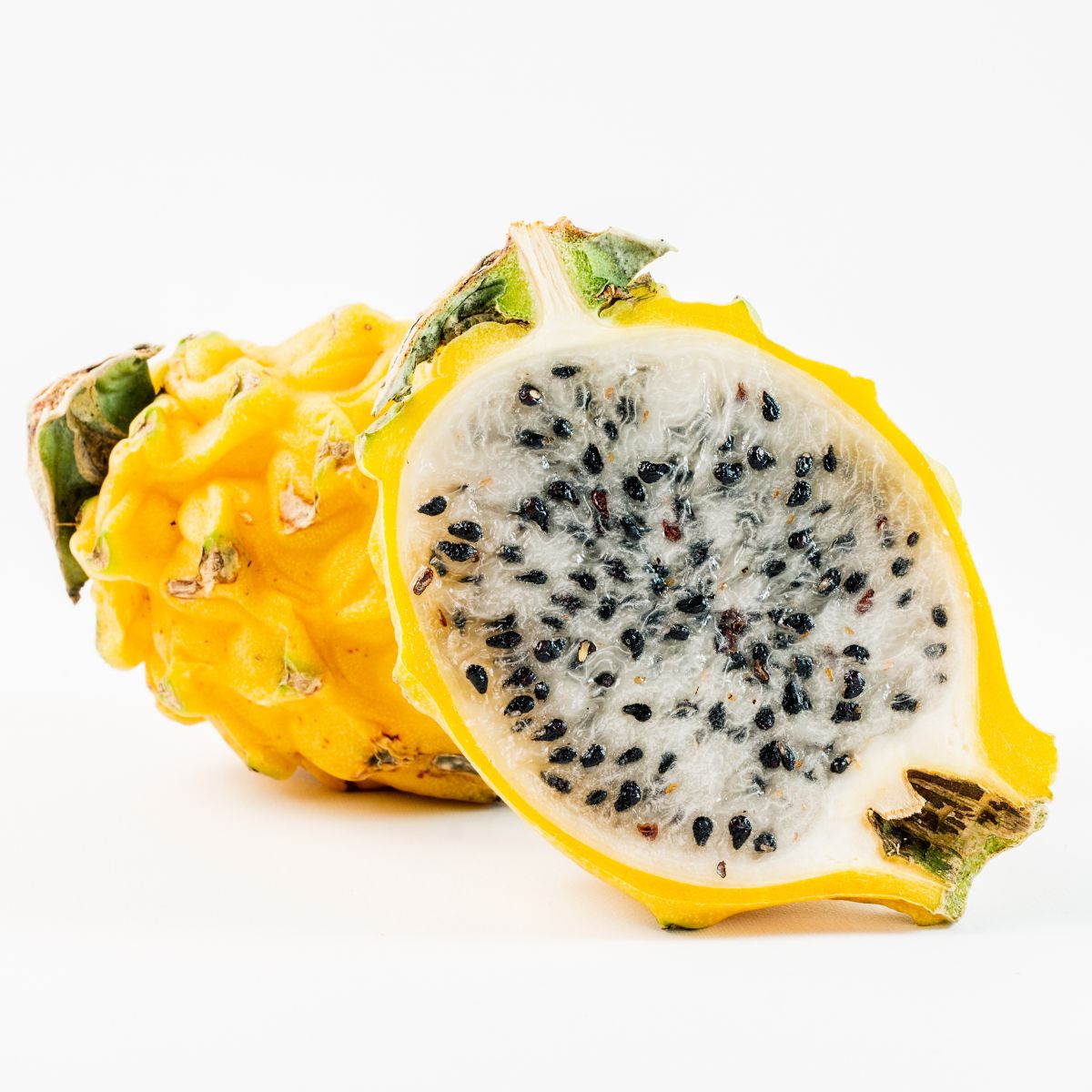
Dragon fruit is high in fiber and vitamin C. It's also a source of vitamin A, calcium and magnesium.
It is rich in antioxidants like flavonoids, phenolic acid and betacyanin.
27. Yuzu
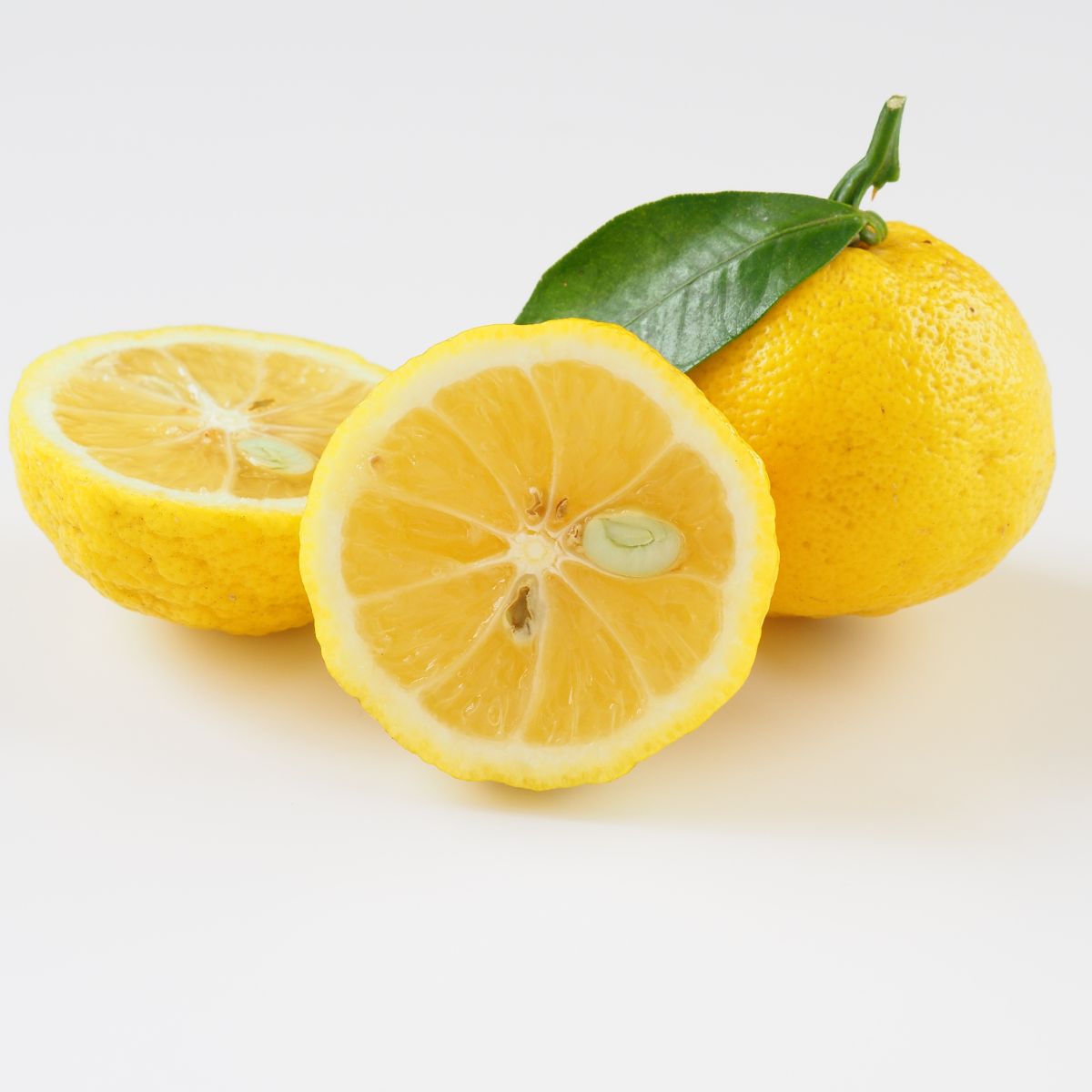
Yuzu is a citrus fruit. It is low in calories and particularly rich in vitamins A and C.
It also contains limonene and flavonoids.
28. Buddha’s Hand (Fingered Citron)
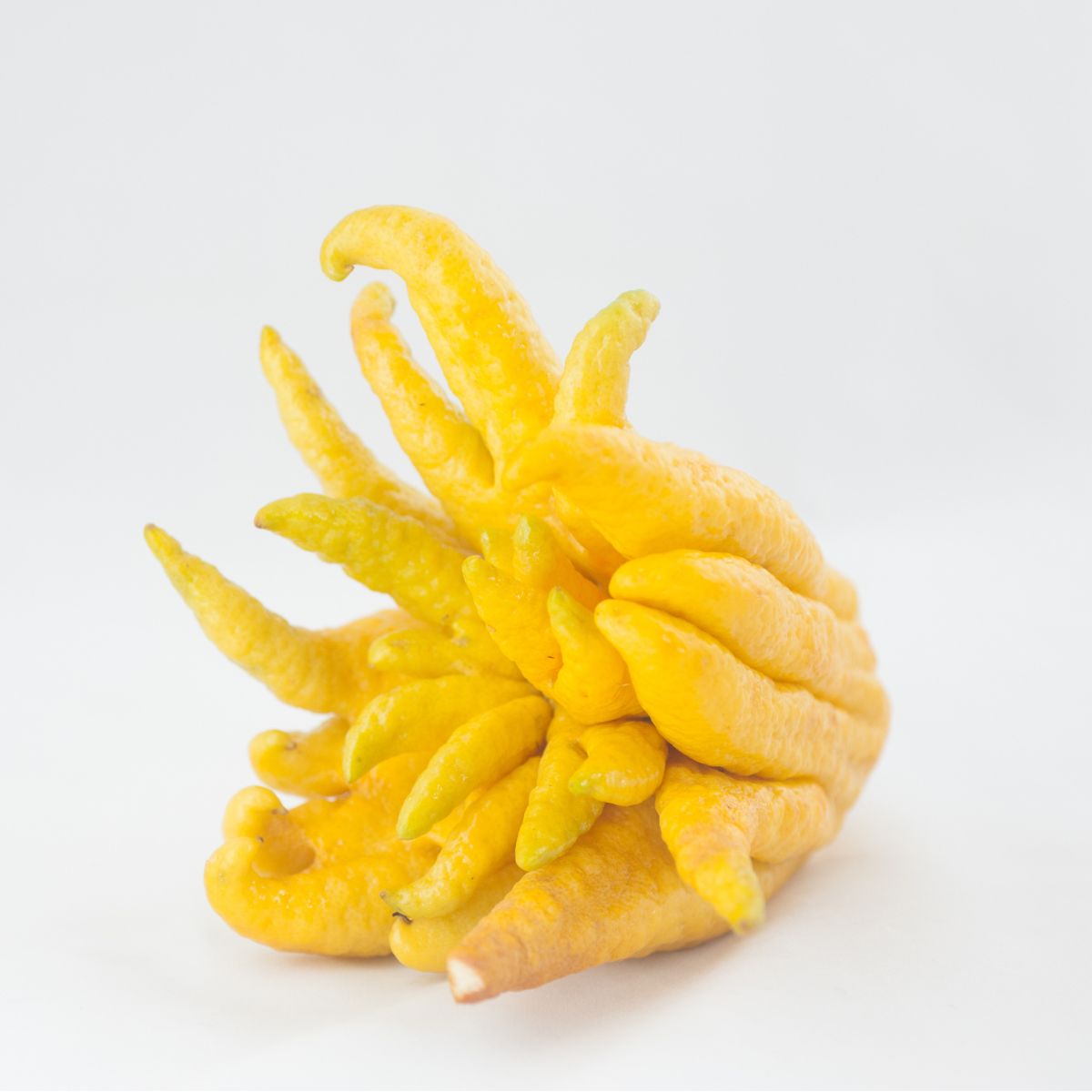
Buddha’s hand is another citrus fruit. It is native to China and Northeast India.
It contains high amounts of vitamin C, calcium and dietary fiber.
29. Loquat
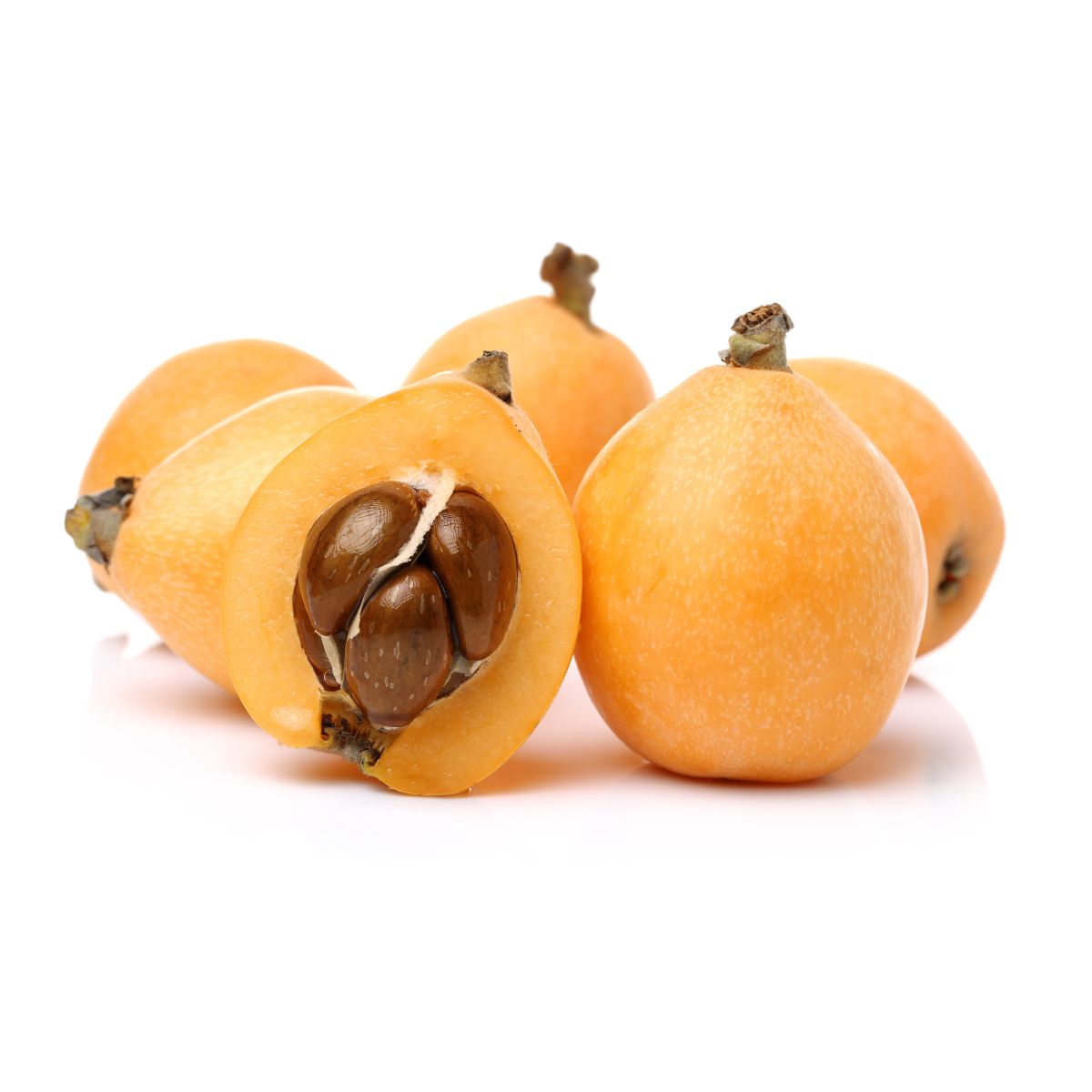
Loquats are low-calorie fruits that provide an array of nutrients, including provitamin A, vitamin B6, folate, magnesium, potassium, and manganese.
These fruits are an excellent source of carotenoids and phenolic compounds.
They also contain small amounts of vitamin C, thiamine (vitamin B1), riboflavin (vitamin B2), copper, iron, calcium and phosphorus.
30. Persimmon
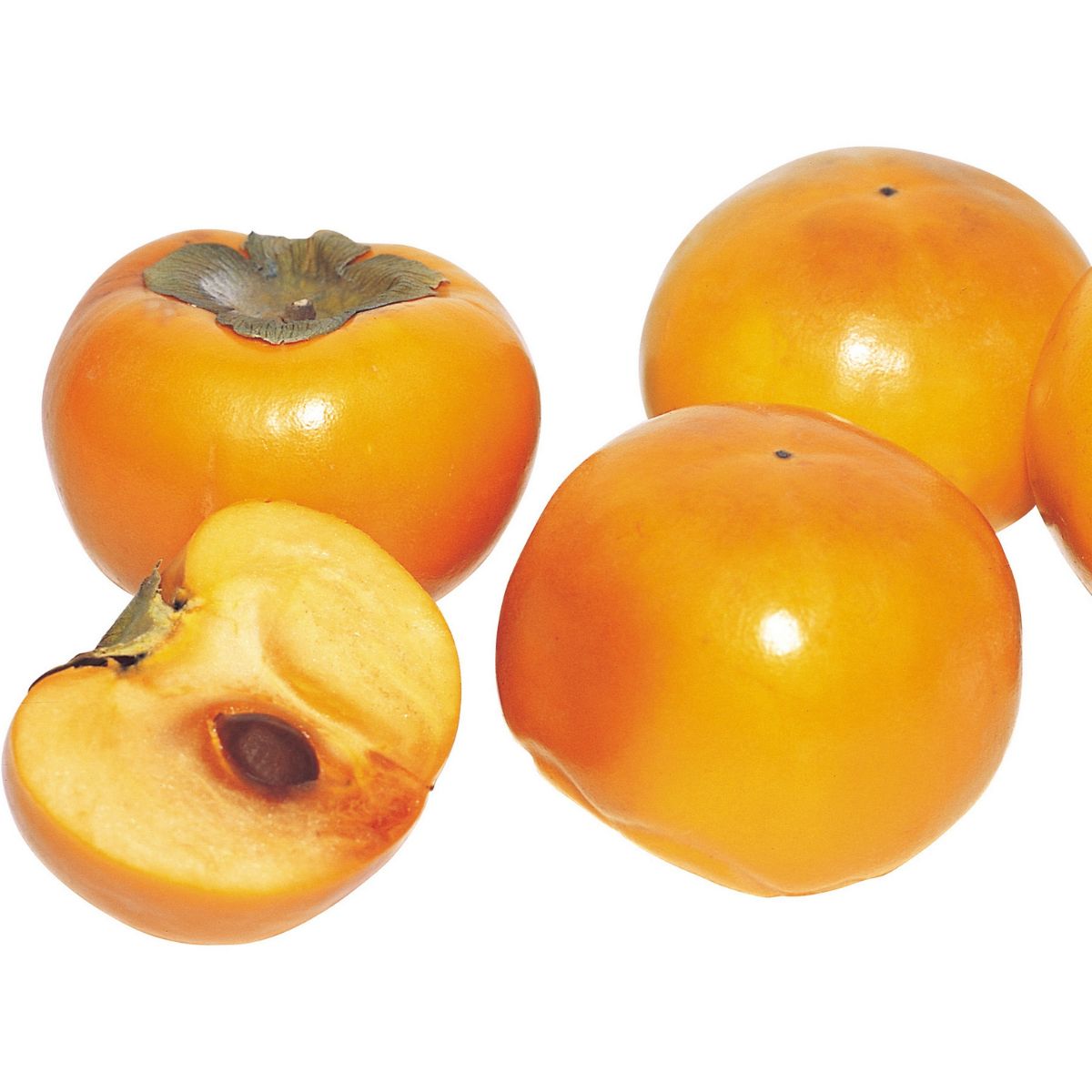
Originally from China, persimmons are known for their sweet, honey-like flavor.
Persimmons are rich in fiber. They are high in vitamins A, C and B, potassium and manganese. They also contain beneficial plant compounds like tannins, lutein and zeaxanthin.
Moreover, persimmons are an excellent source of carotenoids and flavonoids.
31. Yellow Passion Fruit
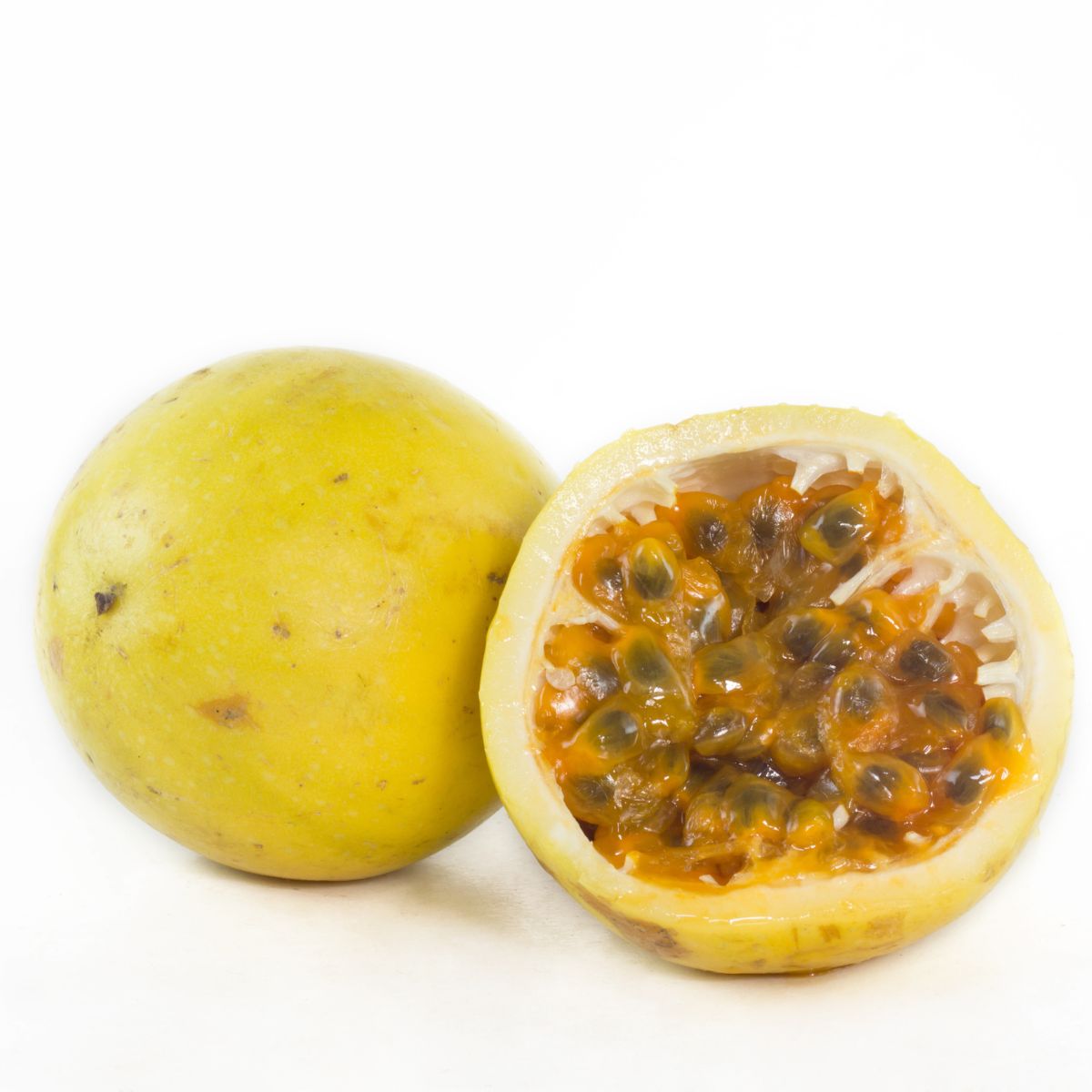
Passion fruit is a small sized tropical fruit with a hard outer rind and a juicy pulp that is filled with edible, crunchy seeds.
It is an excellent source of vitamin C and vitamin A. And it is rich in dietary fiber.
They are also a source of calcium, magnesium, phosphorus, potassium and folate.
Caution about Yellow Passion Fruit
Passion fruit is safe to eat for most people. But allergies do occur in a small number of people, those with a latex allergy are at greater risk.
32. Physalis
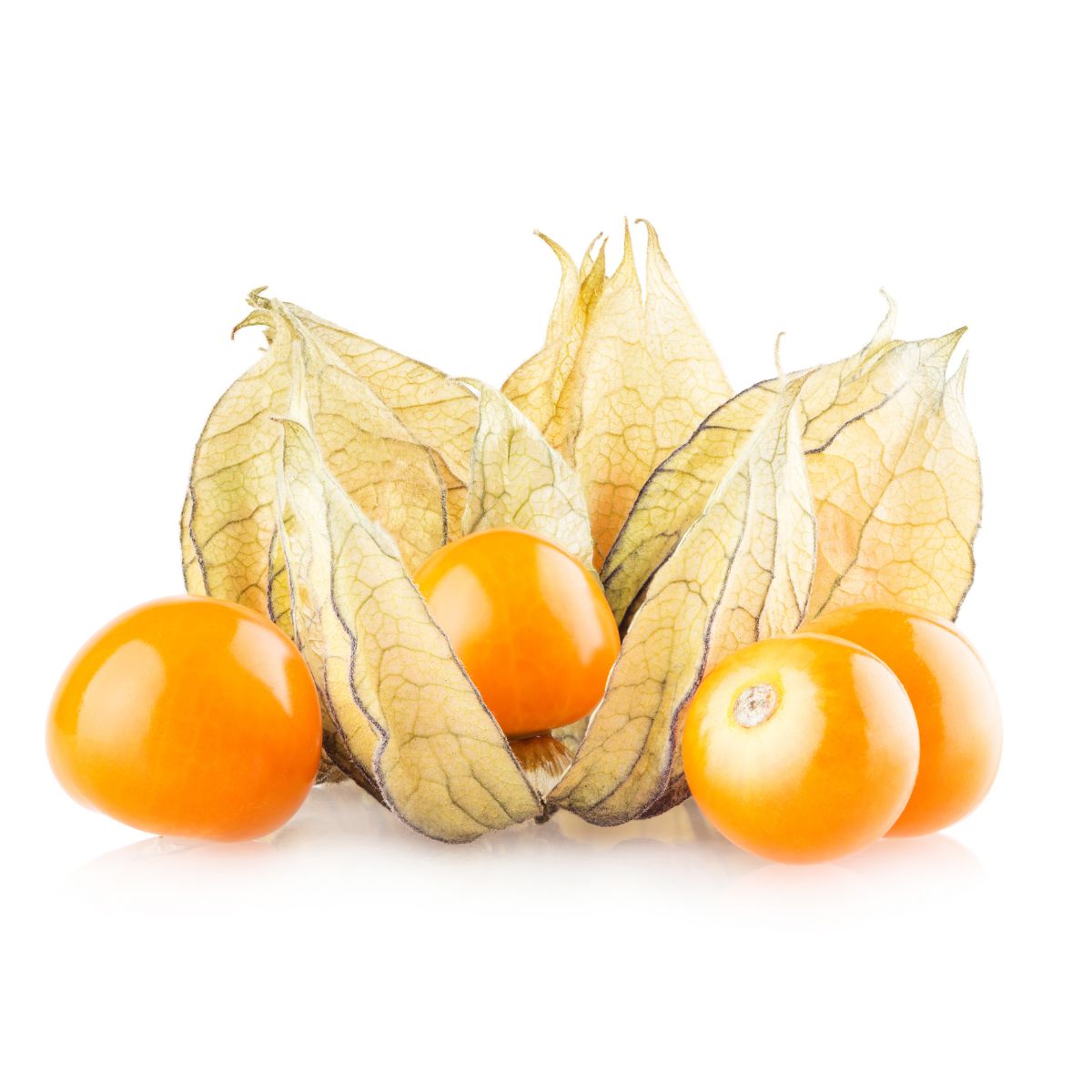
Physalis are tart berries, wrapped in a beautiful papery case.You most probably have seen some of these on top of a dessert as they are often used for garnish.
There are many different species of Physalis: Cape gooseberry, golden berries, groundcherries, husk tomatoes, husk cherries and poha berries.
They are a rich source of vitamin C, antioxidants, and other nutrients that include beta-carotene and vitamin K. They are also high in pectin.
Caution about Physalis
Physalis are part of the Solanaceae (also known as the nightshades) plant family. So if you react to nightshades or you are on a nightshades free diet like AIP you need to stay away from them.
33. Nance Fruit (Nanche or Hogberry)
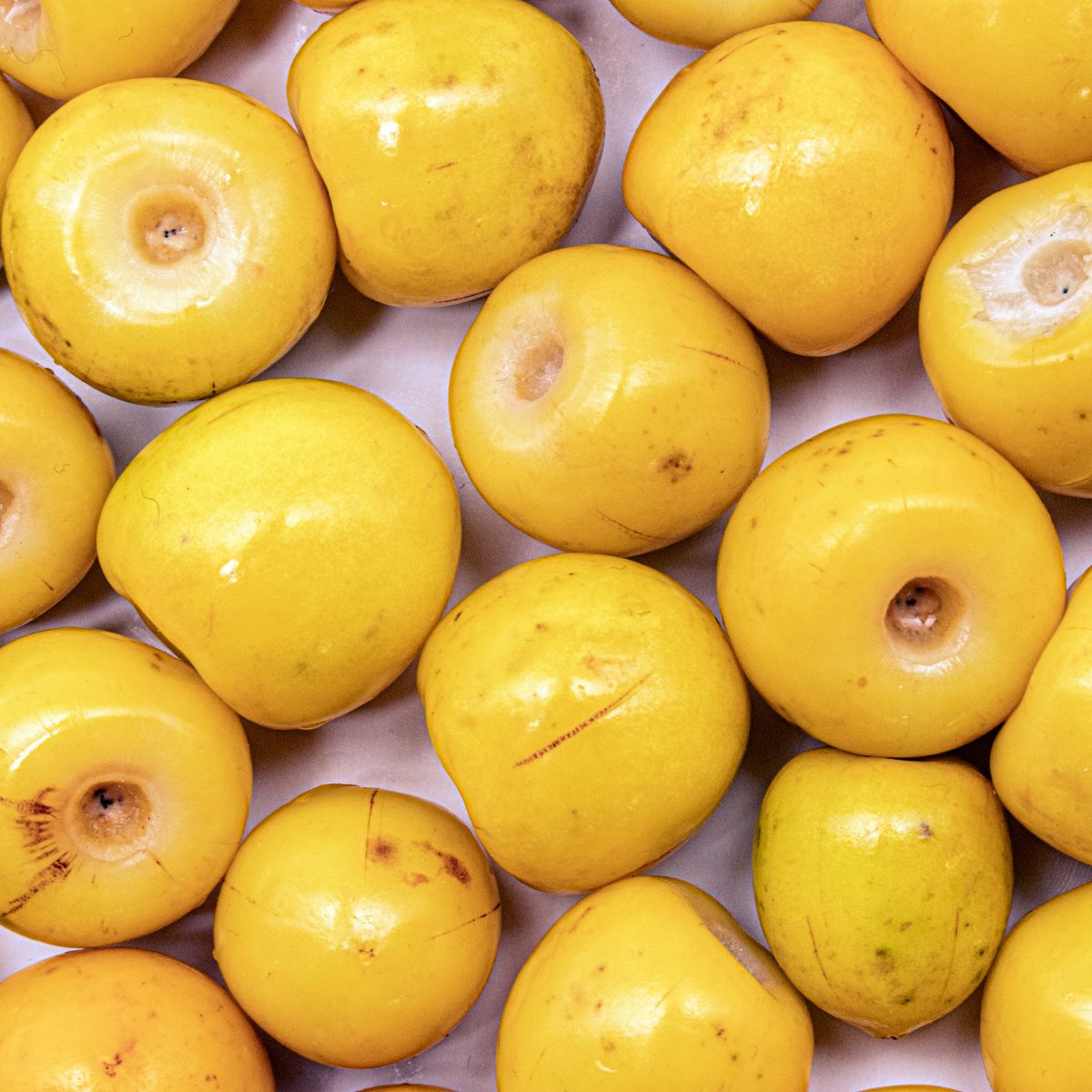
Nance fruit is a pitted fruit that looks a bit like a yellow cherry but bears a strong odor and unique flavor.
Nance fruit is a rich source of vitamin C and dietary fiber. It is also a good source of vitamin E, vitamin K, vitamin A, manganese and folate.
Caution about Nance Fruit
Those allergic to Acerola cherries should steer clear of Nance fruit, as they’re from the same botanical family.
34. Yellow Rambutan
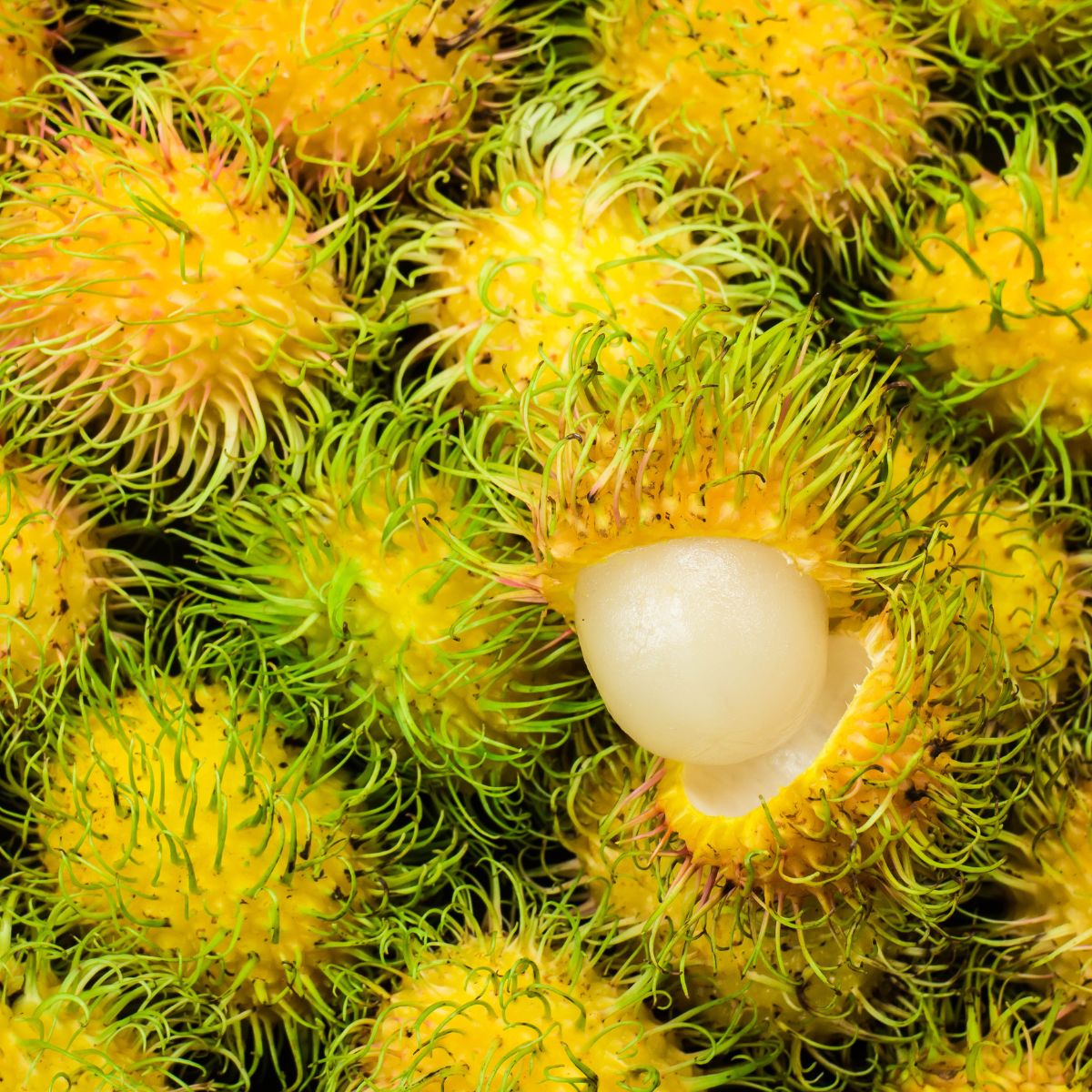
Rambutans are furry fruits with a creamy white center.
They are also full of potassium and rich in vitamin C and vitamin B5.
They offer dietary fiber in both soluble and insoluble form.
35. Yellow Watermelon
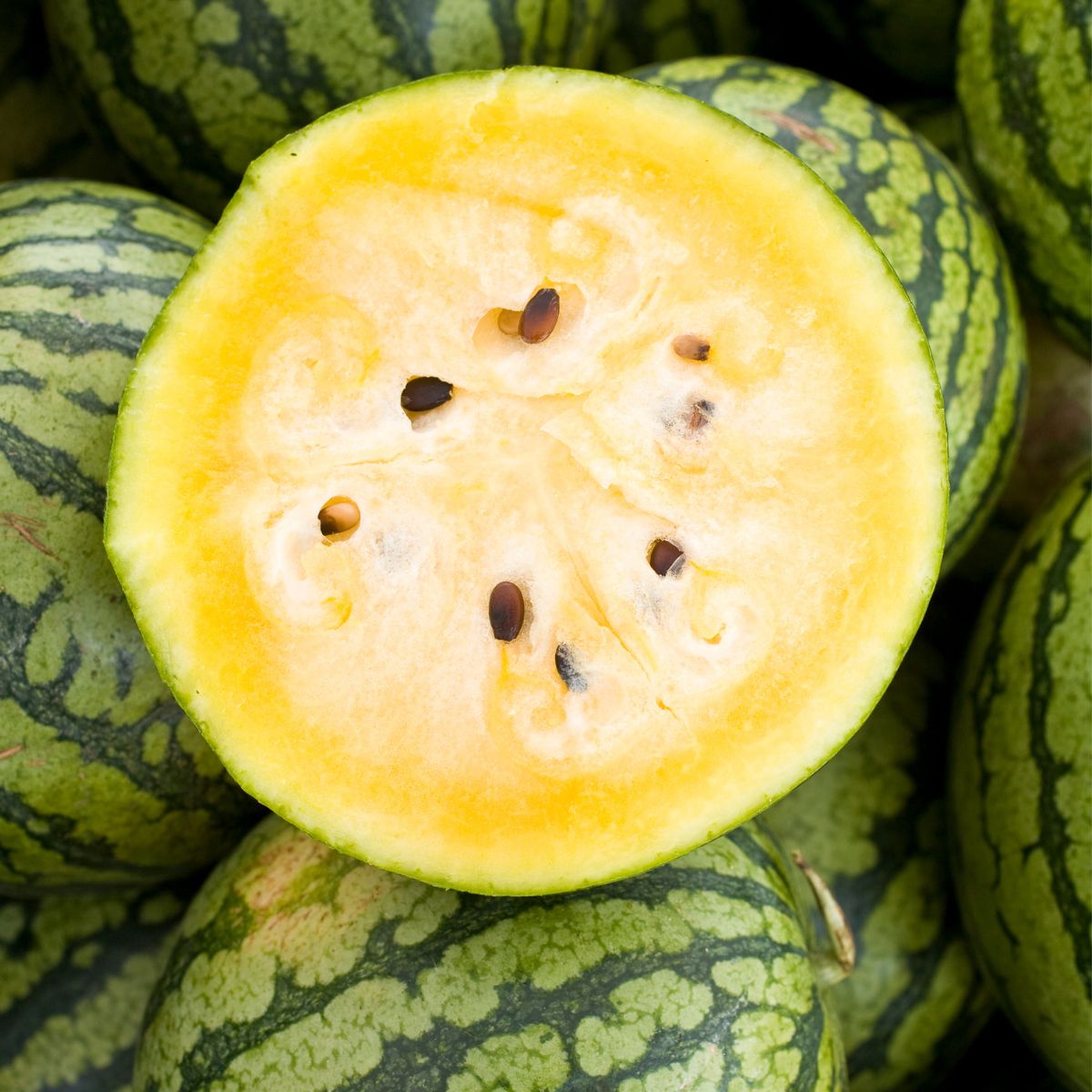
Yellow watermelon is a summer fruit that has high water and fiber content.
It is high in vitamin A and carotenoid.
Yellow watermelon is also a source of vitamin C, vitamin B6 and potassium.
The white part of the flesh of yellow watermelon, is rich in an amino acid called citrulline.
36. Canary Melon (Spanish melon or Juan Canary)
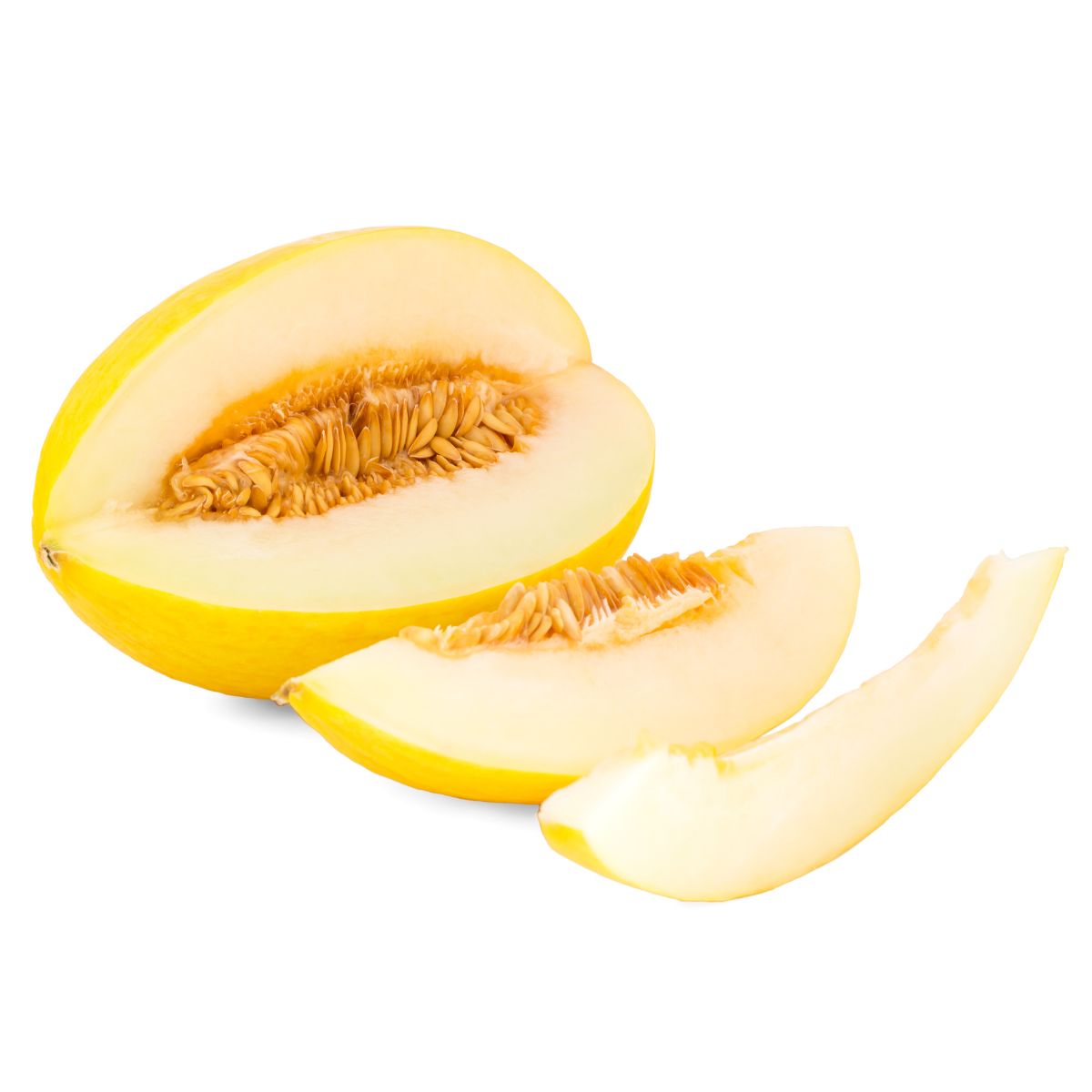
Canary melons are an excellent source of fiber. They are high in vitamin C.
In addition to being a great source of vitamin C, canary melons are also rich in vitamin A.
37. Galia Melon
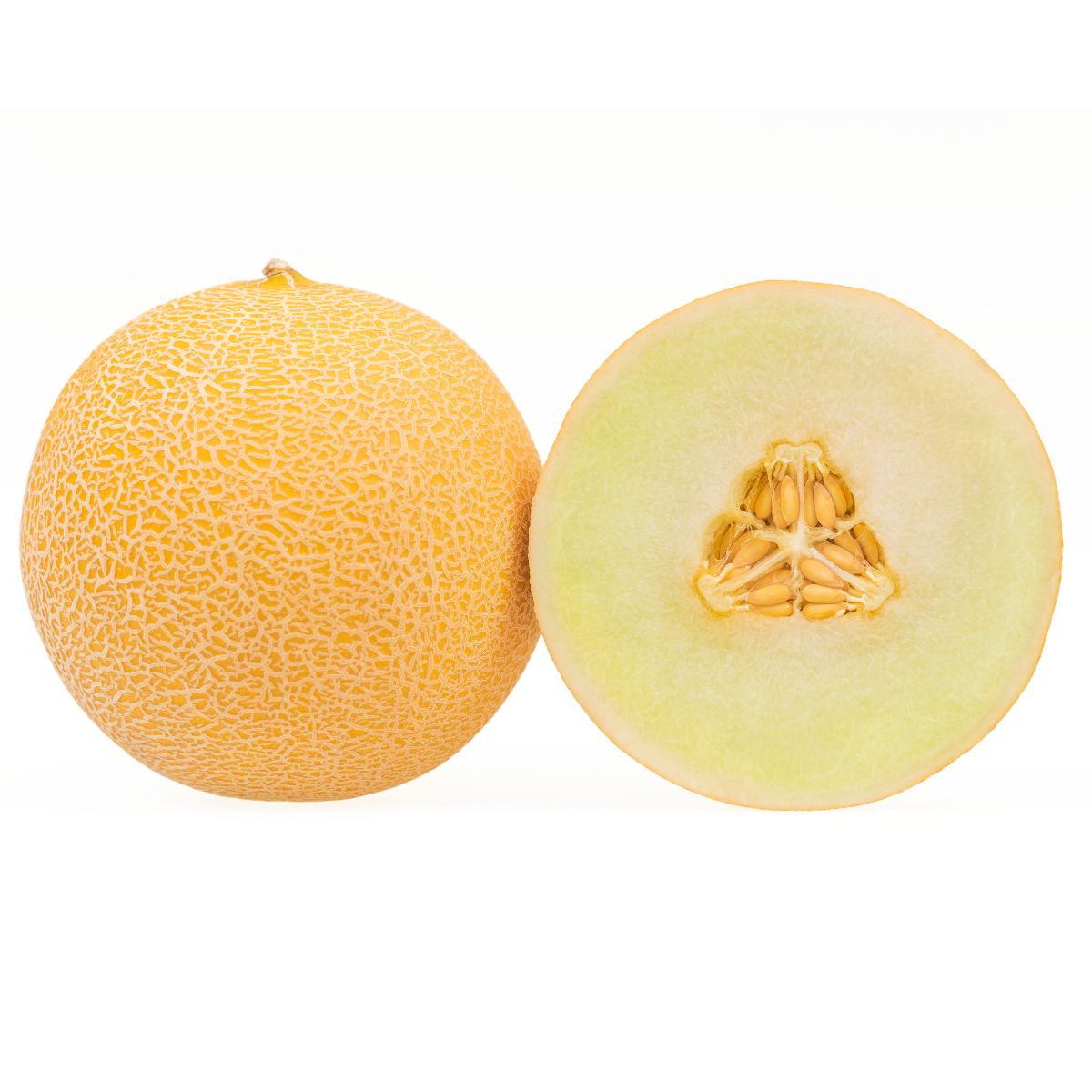
Galia melon is a unique hybrid melon created from cantaloupe and honeydew melon.
It contains a high level of dietary fiber and high amounts of vitamins and minerals.
Galia melon is rich in Vitamin A and Vitamin C.
It is also an excellent source of potassium, bioflavinoids, carotenoids, calcium and iron.
38. Casaba Melon (Golden Beauty)
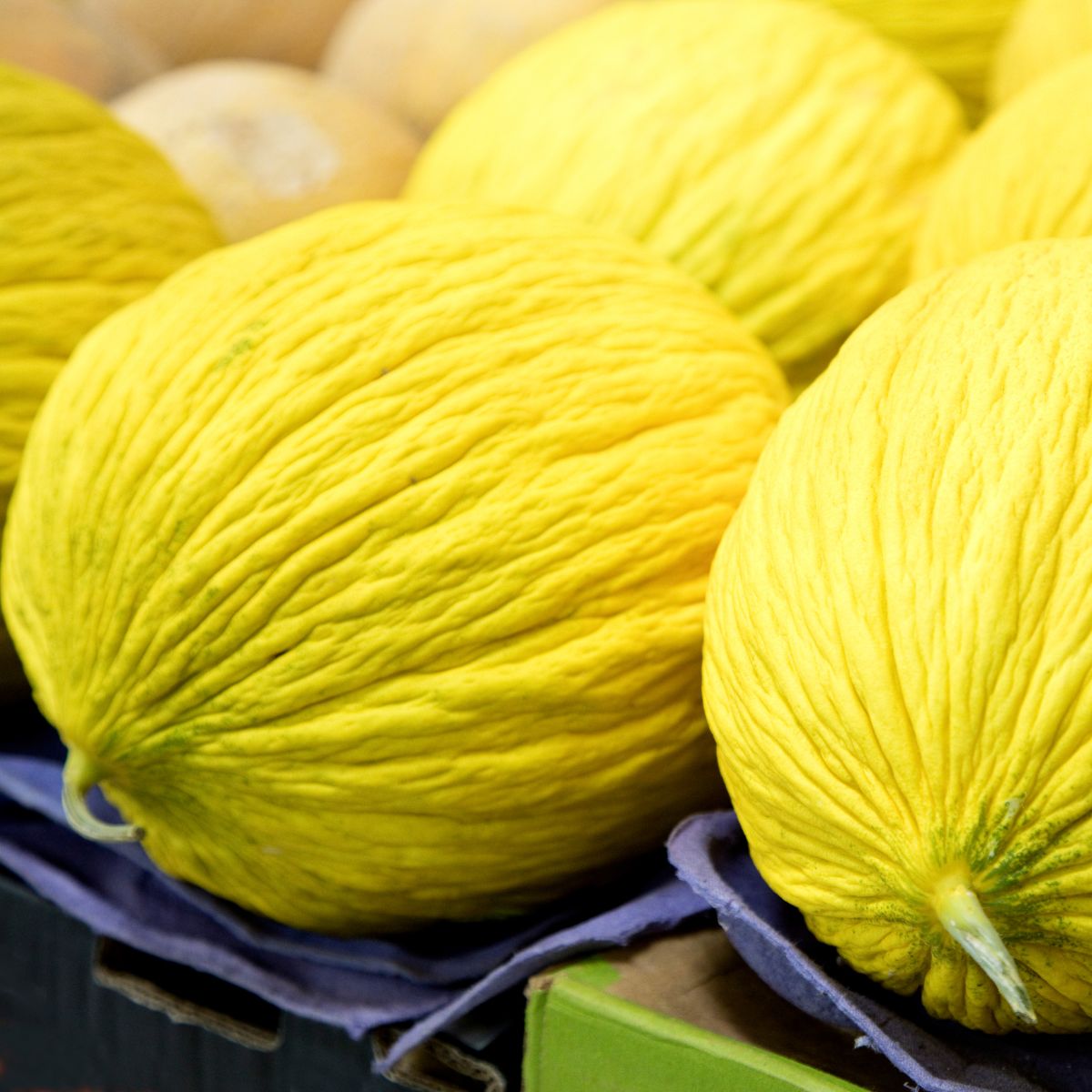
The Casaba melon is low in saturated fat, cholesterol and sodium and high in Vitamin C, Vitamin B6, dietary fiber, Vitamin K, potassium and copper. These nutrients are helpful in maintaining optimum health as well as weight loss.
39. Yellow Honeydew
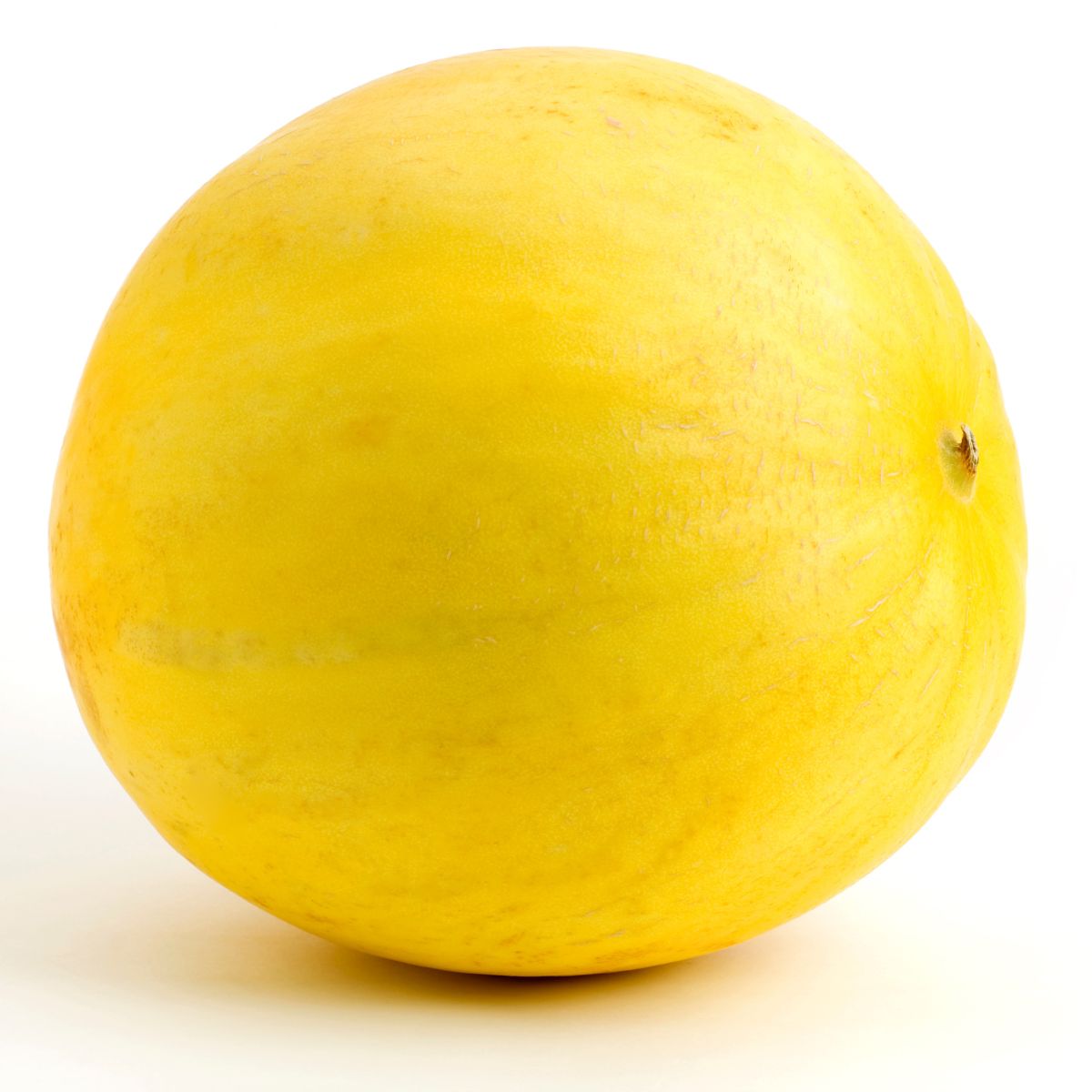
With high levels of Vitamin C, fiber and other nutrients, honeydew has proven itself to be very good for your health.
Honeydew also contains vitamin A, calcium, iron, folates, vitamin B6, potassium, Vitamin K and magnesium.
🧾 Printable Pdf List
Fill out the form below to download the free yellow fruits list pdf.
💭 Conclusion
Incorporating yellow fruits into your diet can have a significant impact on your overall health. From improving digestion to boosting immunity, protecting heart health, promoting healthy skin and managing weight, these fruits are a great addition to any meal.
But before adding yellow fruits to your diet make an appointment with your doctor or a nutritionist to discuss your personal diet. They can help you create a healthy diet plan that includes whole foods and specifies portions suitable for you.
Moreover, please note that eating any kind of fruit in excess may be harmful. A healthy diet must be right balanced.
Furthermore, cooked fruits may not have the same health benefits as raw fruits, as some of the nutrients will be destroyed during the cooking process.
However, yellow fruits make a delicious snack. And if you want more snack ideas, then be sure to check out my post on gluten free dairy free snacks.
Did you like this article? Please leave a review below! Also, let's stay connected on social media! You can find me on Instagram, Facebook and Pinterest.
References:
- The Importance of a Colorful Diet
- Eating the Rainbow — Is It Useful and Should You Try It?
- Eat a Colorful Diet
- 11 Evidence-Based Health Benefits of Bananas
- What’s the Healthiest Apple? 5 of the Best Types
- Health Benefits of Lemon
- 9 Health and Nutrition Benefits of Pears
- The Top 16 Health Benefits of Grapes
- Mirabelle Plums
- Health Benefits of Pineapple
- 7 Health Benefits of Nectarines, Backed by Science
- 10 Surprising Health Benefits and Uses of Peaches
- Grapefruit Benefits
- What Is Quince Fruit? Top 6 Benefits + How to Eat It
- Top 5 health benefits of mango
- What's Healthier: Red Tomatoes Or Yellow Tomatoes?
- Gold Raspberries
- What are the health benefits of plantains?
- Star fruit
- Health Benefits of Papaya
- All You Need to Know About Figs
- All about Golden Kiwi
- Yellow Barhi Dates
- Top 7 Health and Nutrition Benefits of Persimmon
- Health Benefits of Buddha’s Hand / Fingered Citron
- 7 Surprising Benefits of Loquats
- Dragon Fruit
- 13 Emerging Benefits and Uses of Yuzu Fruit
- Passion Fruit
- 8 Impressive Health Benefits of Gooseberries
- Asian Pears: Health Benefits, Nutrition, and Uses
- Health Benefits of Physalis
- Nance Fruit: Nutrition, Benefits, and Precautions
- Health Benefits of Rambutan
- 8 Amazing Benefits Of Adding Yellow Watermelon In Your Diet
- What Are the Health Benefits from Canary Melon?
- Health Benefits of Galia Melon
- Summer Melons
- Health Benefits of Honeydew


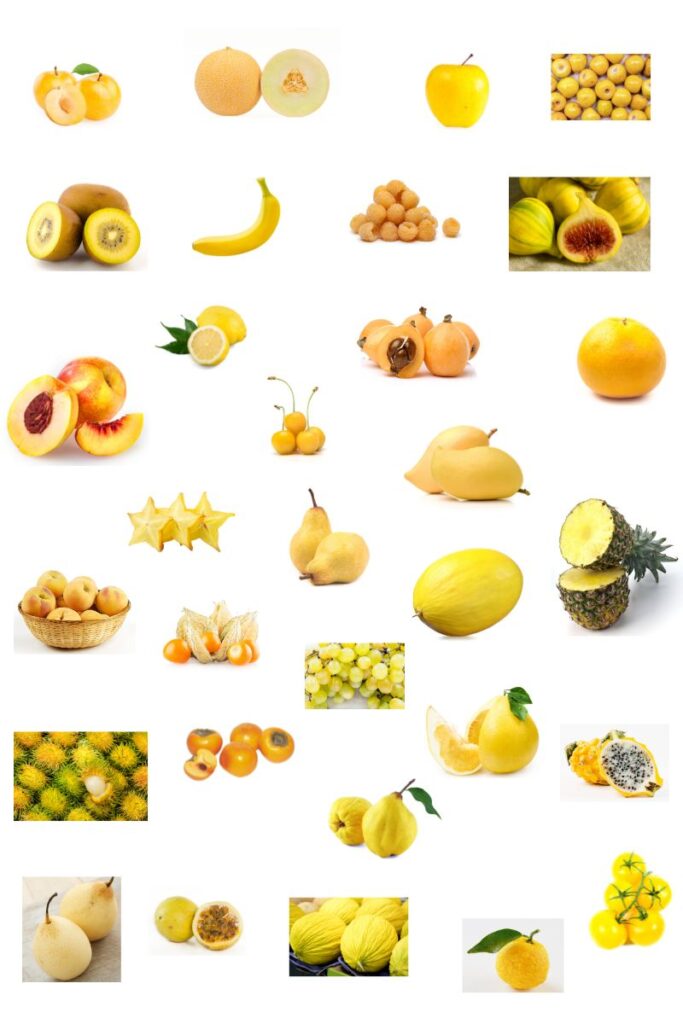




Leave a Reply